
About this Conference
This invitation-only biennial conference is for chairs of Ph.D.-granting departments of Computer Science, Computer Engineering, and Information Technology, and leaders from U.S. industrial and government computing research laboratories and centers interested in computing research issues. Questions may be addressed to snowbird@cra.org.
Workshop for New Department Chairs
Chairs
Susan Davidson
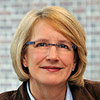 Susan B. Davidson received the B.A. degree in Mathematics from Cornell University in 1978, and the Ph.D. degree in Computer Science from Princeton University in 1982. Dr. Davidson joined the University of Pennsylvania in 1982, and is now the Weiss Professor of Computer and Information Science (CIS). She is an ACM Fellow, a Fulbright scholar, and has served as Deputy Dean of the School of Engineering and Applied Science and as Department Chair of CIS. Prior to this, she was a founding co-Director of the Penn Center for Bioinformatics and of the Greater Philadelphia Bioinformatics Alliance. As Deputy Dean, Dr. Davidson established a mentoring policy and oversight structure for SEAS, and founded the Advancing Women in Engineering (AWE) program. AWE is dedicated to recruiting, retaining, and promoting women in Penn Engineering. In addition to programs for existing students, AWE has created a pre-orientation program for women entering the program, and a highly successful outreach program for middle school girls called PennGEMS. Dr. Davidson's research interests include database systems, database modeling, database integration, distributed systems, data citation, bioinformatics and scientific workflow systems. Within bioinformatics she is best known for her work in data integration strategies, XML query and update technologies, and in provenance for scientific workflows. Personal Web Page
Susan B. Davidson received the B.A. degree in Mathematics from Cornell University in 1978, and the Ph.D. degree in Computer Science from Princeton University in 1982. Dr. Davidson joined the University of Pennsylvania in 1982, and is now the Weiss Professor of Computer and Information Science (CIS). She is an ACM Fellow, a Fulbright scholar, and has served as Deputy Dean of the School of Engineering and Applied Science and as Department Chair of CIS. Prior to this, she was a founding co-Director of the Penn Center for Bioinformatics and of the Greater Philadelphia Bioinformatics Alliance. As Deputy Dean, Dr. Davidson established a mentoring policy and oversight structure for SEAS, and founded the Advancing Women in Engineering (AWE) program. AWE is dedicated to recruiting, retaining, and promoting women in Penn Engineering. In addition to programs for existing students, AWE has created a pre-orientation program for women entering the program, and a highly successful outreach program for middle school girls called PennGEMS. Dr. Davidson's research interests include database systems, database modeling, database integration, distributed systems, data citation, bioinformatics and scientific workflow systems. Within bioinformatics she is best known for her work in data integration strategies, XML query and update technologies, and in provenance for scientific workflows. Personal Web Page
Eric Grimson
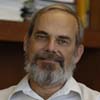 Eric Grimson is the Bernard Gordon Professor of Medical Engineering and a Professor of Computer Science at MIT. He joined the MIT faculty in 1984, served as Education Officer for the Department of Electrical Engineering and Computer Science for three years, Associate Department Head for a year, and Head of EECS for 6 years, before becoming Chancellor of MIT in 2011. Since 2014 he has held the position of Chancellor for Academic Advancement at MIT. His research has focused on computer vision, with particular emphasis on medical image computing applications. He is a Fellow of AAAI, and a Fellow of the IEEE. Personal Web Page
Eric Grimson is the Bernard Gordon Professor of Medical Engineering and a Professor of Computer Science at MIT. He joined the MIT faculty in 1984, served as Education Officer for the Department of Electrical Engineering and Computer Science for three years, Associate Department Head for a year, and Head of EECS for 6 years, before becoming Chancellor of MIT in 2011. Since 2014 he has held the position of Chancellor for Academic Advancement at MIT. His research has focused on computer vision, with particular emphasis on medical image computing applications. He is a Fellow of AAAI, and a Fellow of the IEEE. Personal Web Page
Speakers: Nuts and Bolts of Managing a Department
Anne Condon
 Anne Condon is Professor and Head (since 2011) of the Department of Computer Science at U. British Columbia. She previously served as Associate Dean for Faculty Affairs and Strategic Initiatives in UBC's Faculty of Science (2007-2010). Her research is in the areas of computational complexity and algorithms, with a current focus on ways to computationally predict nucleic acid structure and on molecular programming. She is an ACM Fellow and a Fellow of the Royal Society of Canada, and received the Computing Research Association's Habermann Award (2010). Personal Web Page
Anne Condon is Professor and Head (since 2011) of the Department of Computer Science at U. British Columbia. She previously served as Associate Dean for Faculty Affairs and Strategic Initiatives in UBC's Faculty of Science (2007-2010). Her research is in the areas of computational complexity and algorithms, with a current focus on ways to computationally predict nucleic acid structure and on molecular programming. She is an ACM Fellow and a Fellow of the Royal Society of Canada, and received the Computing Research Association's Habermann Award (2010). Personal Web Page
Gregory Hager
 Gregory D. Hager is a Professor and Chair of Computer Science at Johns Hopkins University. He received his BA from Luther College and his MSE and PhD from the University of Pennsylvania in 1986 and 1988, respectively. After a year as a Fulbright scholar at the University of Karlsruhe, he joined the faculty of Yale University in 1990. He moved to Johns Hopkins in 1999. His research interests include image-guided robotics, human-machine collaboration, and medical applications of image analysis and robotics. He has served as the Deputy Director of the NSF Engineering Research Center for Computer Integrated Surgical Systems and Technology, he serves on board of the International Federation of Robotics Research, and he is a fellow of the IEEE for his contributions in vision-based robotics. He serves as Chair of the Computing Community Consortium. Personal Web Page
Gregory D. Hager is a Professor and Chair of Computer Science at Johns Hopkins University. He received his BA from Luther College and his MSE and PhD from the University of Pennsylvania in 1986 and 1988, respectively. After a year as a Fulbright scholar at the University of Karlsruhe, he joined the faculty of Yale University in 1990. He moved to Johns Hopkins in 1999. His research interests include image-guided robotics, human-machine collaboration, and medical applications of image analysis and robotics. He has served as the Deputy Director of the NSF Engineering Research Center for Computer Integrated Surgical Systems and Technology, he serves on board of the International Federation of Robotics Research, and he is a fellow of the IEEE for his contributions in vision-based robotics. He serves as Chair of the Computing Community Consortium. Personal Web Page
Daniel Lopresti
 Daniel Lopresti received his bachelor's degree from Dartmouth College in 1982 and his Ph.D. in computer science from Princeton University in 1987. He began his career on the faculty of the Department of Computer Science at Brown University. He then went on to help found the Matsushita Information Technology Laboratory in Princeton, and later moved to the research staff at Bell Labs. In 2003, he joined the Department of Computer Science and Engineering at Lehigh University where his research has focused on fundamental algorithmic and systems-related questions in applied pattern recognition, including document analysis and related topic areas. He became Chair of the CSE Department in July 2009 and, effective July 1, will be serving as Interim Dean of the P.C. Rossin College of Engineering and Applied Science. Personal Web Page
Daniel Lopresti received his bachelor's degree from Dartmouth College in 1982 and his Ph.D. in computer science from Princeton University in 1987. He began his career on the faculty of the Department of Computer Science at Brown University. He then went on to help found the Matsushita Information Technology Laboratory in Princeton, and later moved to the research staff at Bell Labs. In 2003, he joined the Department of Computer Science and Engineering at Lehigh University where his research has focused on fundamental algorithmic and systems-related questions in applied pattern recognition, including document analysis and related topic areas. He became Chair of the CSE Department in July 2009 and, effective July 1, will be serving as Interim Dean of the P.C. Rossin College of Engineering and Applied Science. Personal Web Page
Speakers: Dealing with Stakeholders
Julia Hirschberg
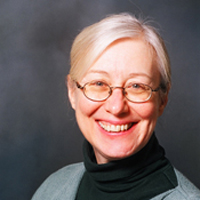 Julia Hirschberg is Percy K. and Vida L. W. Hudson Professor of Computer Science and Chair of the Computer Science Department at Columbia University. She worked at Bell Laboratories and AT&T Laboratories -- Research from 1985-2003 as a Member of Technical Staff and a Department Head, creating the Human-Computer Interface Research Department in 1994. She served as editor-in-chief of Computational Linguistics from 1993-2003 and co-editor-in-chief of Speech Communication from 2003-2006. She served on the Executive Board of the Association for Computational Linguistics (ACL) from 1993-2003, on the Permanent Council of International Conference on Spoken Language Processing (ICSLP) since 1996, and on the board of the International Speech Communication Association (ISCA) from 1999-2007 (as President 2005-2007). She now serves on the IEEE Speech and Language Processing Technical Committee, the Association for the Advancement of Artificial Intelligence (AAAI) Council, and the Executive Board of the North American ACL. She has been an AAAI fellow since 1994, an ISCA Fellow since 2008, and a (founding) ACL Fellow since 2011. She was elected to the American Philosophical Society in 2014. Personal Web Page
Julia Hirschberg is Percy K. and Vida L. W. Hudson Professor of Computer Science and Chair of the Computer Science Department at Columbia University. She worked at Bell Laboratories and AT&T Laboratories -- Research from 1985-2003 as a Member of Technical Staff and a Department Head, creating the Human-Computer Interface Research Department in 1994. She served as editor-in-chief of Computational Linguistics from 1993-2003 and co-editor-in-chief of Speech Communication from 2003-2006. She served on the Executive Board of the Association for Computational Linguistics (ACL) from 1993-2003, on the Permanent Council of International Conference on Spoken Language Processing (ICSLP) since 1996, and on the board of the International Speech Communication Association (ISCA) from 1999-2007 (as President 2005-2007). She now serves on the IEEE Speech and Language Processing Technical Committee, the Association for the Advancement of Artificial Intelligence (AAAI) Council, and the Executive Board of the North American ACL. She has been an AAAI fellow since 1994, an ISCA Fellow since 2008, and a (founding) ACL Fellow since 2011. She was elected to the American Philosophical Society in 2014. Personal Web Page
Rob Rutenbar
 Rob A. Rutenbar is Bliss Professor and Head of Computer Science at the University of Illinois at Urbana-Champaign. He received the PhD in 1984 from the University of Michigan, and spent the next 25 years on the faculty at Carnegie Mellon. At CMU, his group pioneered a wide range of software tools for custom integrated circuits. In 1998 he cofounded Neolinear, Inc. to commercialize this work; he served as Chief Scientist until its acquisition by Cadence in 2004. From 2001 to 2009, he was Director of a large multi-university research effort, the Center for Circuit & Systems Solutions (C2S2), which comprised over a dozen US universities, chartered by the US semiconductor industry and DARPA to address challenges arising from the end of Moore’s Law. Rutenbar has also worked on custom architectures for highly efficient speech recognition. He is currently Chief Scientist for Voci Technologies Inc., a startup he cofounded in 2006 to develop these ideas; Voci delivers hardware appliances and cloud services for speech analytics. In 2010 he moved to the University of Illinois to become Head of CS. At Illinois, his research focuses on novel silicon architectures for probabilistic inference and ML applications. In 2013, he developed and taught the first MOOC on VLSI CAD. He’s won many awards in his career, such as the 2001 SRC Aristotle Award, acknowledging the impact of his students on the US Semiconductor industry, and the 2007 IEEE CAS Industrial Pioneer Award. He is a Fellow of the ACM and the IEEE. Personal Web Page
Rob A. Rutenbar is Bliss Professor and Head of Computer Science at the University of Illinois at Urbana-Champaign. He received the PhD in 1984 from the University of Michigan, and spent the next 25 years on the faculty at Carnegie Mellon. At CMU, his group pioneered a wide range of software tools for custom integrated circuits. In 1998 he cofounded Neolinear, Inc. to commercialize this work; he served as Chief Scientist until its acquisition by Cadence in 2004. From 2001 to 2009, he was Director of a large multi-university research effort, the Center for Circuit & Systems Solutions (C2S2), which comprised over a dozen US universities, chartered by the US semiconductor industry and DARPA to address challenges arising from the end of Moore’s Law. Rutenbar has also worked on custom architectures for highly efficient speech recognition. He is currently Chief Scientist for Voci Technologies Inc., a startup he cofounded in 2006 to develop these ideas; Voci delivers hardware appliances and cloud services for speech analytics. In 2010 he moved to the University of Illinois to become Head of CS. At Illinois, his research focuses on novel silicon architectures for probabilistic inference and ML applications. In 2013, he developed and taught the first MOOC on VLSI CAD. He’s won many awards in his career, such as the 2001 SRC Aristotle Award, acknowledging the impact of his students on the US Semiconductor industry, and the 2007 IEEE CAS Industrial Pioneer Award. He is a Fellow of the ACM and the IEEE. Personal Web Page
Ellen Zegura
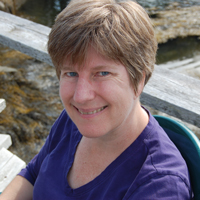 Ellen W. Zegura received the BS-CS, BS-EE, MS-CS and DSc-CS all from Washington University in St. Louis, Missouri. Since 1993 she has been on the faculty of the College of Computing at Georgia Tech. She has conducted research and taught in computer networking for over 20 years. Her research interests include the Internet, with a focus on its topological structure and services, and mobile wireless computing and networking. In network topology, she is the co-creator of the GT-ITM suite of Internet topology modeling tools, which remains in use 15 years after its original release. In mobile wireless networking, she and colleagues invented the concept of message ferries to facilitate communications in environments where network connectivity is unreliable and/or sparse. Almost five years ago, she helped create the Computing for Good initiative in the College of Computing, a project-based teaching and research activity that focuses on the use of computing to solve pressing societal problems. She is a Fellow of the IEEE, a Fellow of the ACM, and an elected member of the Computing Research Association Board. She served on the NSF CISE Advisory Committee from 2005-2009. Personal Web Page
Ellen W. Zegura received the BS-CS, BS-EE, MS-CS and DSc-CS all from Washington University in St. Louis, Missouri. Since 1993 she has been on the faculty of the College of Computing at Georgia Tech. She has conducted research and taught in computer networking for over 20 years. Her research interests include the Internet, with a focus on its topological structure and services, and mobile wireless computing and networking. In network topology, she is the co-creator of the GT-ITM suite of Internet topology modeling tools, which remains in use 15 years after its original release. In mobile wireless networking, she and colleagues invented the concept of message ferries to facilitate communications in environments where network connectivity is unreliable and/or sparse. Almost five years ago, she helped create the Computing for Good initiative in the College of Computing, a project-based teaching and research activity that focuses on the use of computing to solve pressing societal problems. She is a Fellow of the IEEE, a Fellow of the ACM, and an elected member of the Computing Research Association Board. She served on the NSF CISE Advisory Committee from 2005-2009. Personal Web Page
Speakers: Strategic Planning and Thinking
Kevin Bowyer
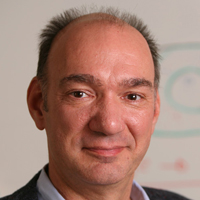 Kevin Bowyer is the Schubmehl-Prein Professor and Chair of the Department of Computer Science and Engineering at the University of Notre Dame. Professor Bowyer's research interests touch on various aspects of computer vision and pattern recognition, including biometrics and data mining. He is a Fellow of the IAPR (“for contributions to computer vision, pattern recognition and biometrics”), a Fellow of the IEEE (“for contributions to algorithms for recognizing objects in images”), and a Golden Core member of the IEEE Computer Society. Professor Bowyer received a 2014 IEEE Computer Society Technical Achievement Award "for pioneering contributions to the science and engineering of biometrics". Professor Bowyer is serving as General Chair of the 2015 IEEE International Conference on Automated Face and Gesture Recognition. He was previously General Chair of the 2011 International Joint Conference on Biometrics and a number of other conferences, and he has previously served as Editor-In-Chief of the IEEE Transactions on Pattern Analysis and Machine Intelligence and of the IEEE Biometrics Compendium. Personal Web Page
Kevin Bowyer is the Schubmehl-Prein Professor and Chair of the Department of Computer Science and Engineering at the University of Notre Dame. Professor Bowyer's research interests touch on various aspects of computer vision and pattern recognition, including biometrics and data mining. He is a Fellow of the IAPR (“for contributions to computer vision, pattern recognition and biometrics”), a Fellow of the IEEE (“for contributions to algorithms for recognizing objects in images”), and a Golden Core member of the IEEE Computer Society. Professor Bowyer received a 2014 IEEE Computer Society Technical Achievement Award "for pioneering contributions to the science and engineering of biometrics". Professor Bowyer is serving as General Chair of the 2015 IEEE International Conference on Automated Face and Gesture Recognition. He was previously General Chair of the 2011 International Joint Conference on Biometrics and a number of other conferences, and he has previously served as Editor-In-Chief of the IEEE Transactions on Pattern Analysis and Machine Intelligence and of the IEEE Biometrics Compendium. Personal Web Page
Hank Levy
 Hank Levy is Chairman and Wissner-Slivka Chair in Computer Science & Engineering at University of Washington, where his research includes operating systems, distributed systems, and computer architecture. He is a member of the National Academy of Engineering and a fellow of the ACM and the IEEE. At UW Hank has supervised 24 Ph.D. students, and his publications have earned over a dozen best paper and test of time awards. He is very proud to be leading UW CSE, whre this fall he will be starting the ninth year of his five-year chair term. Personal Web Page
Hank Levy is Chairman and Wissner-Slivka Chair in Computer Science & Engineering at University of Washington, where his research includes operating systems, distributed systems, and computer architecture. He is a member of the National Academy of Engineering and a fellow of the ACM and the IEEE. At UW Hank has supervised 24 Ph.D. students, and his publications have earned over a dozen best paper and test of time awards. He is very proud to be leading UW CSE, whre this fall he will be starting the ninth year of his five-year chair term. Personal Web Page
Frank Pfenning
 Frank Pfenning received his Ph.D. in Mathematics at Carnegie Mellon University in 1987 and subsequently joined its computer science department. He became Professor in 2002 and served as Director of Graduate Programs from 2004-2008 and as Associate Dean for Graduate Education in the School of Computer Science 2009-2010. Since January 2013, he is Head of the Department of Computer Science. He has served as trustee and president of CADE and on advisory boards of INRIA, the Max Planck Institute for Computer Science, and Seoul National University. His research interests include programming languages, logic, type theory, automated deduction, and computer security. Personal Web Page
Frank Pfenning received his Ph.D. in Mathematics at Carnegie Mellon University in 1987 and subsequently joined its computer science department. He became Professor in 2002 and served as Director of Graduate Programs from 2004-2008 and as Associate Dean for Graduate Education in the School of Computer Science 2009-2010. Since January 2013, he is Head of the Department of Computer Science. He has served as trustee and president of CADE and on advisory boards of INRIA, the Max Planck Institute for Computer Science, and Seoul National University. His research interests include programming languages, logic, type theory, automated deduction, and computer security. Personal Web Page
Computing and the Human Experience
Chair
Brent Hailpern
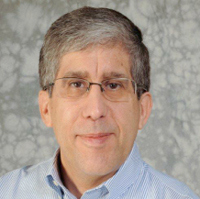 Brent Hailpern is Director of Computer Science for IBM Research, located at Almaden Research Center in San Jose, CA. He is a Fellow of the ACM and the IEEE. He has worked at IBM since 1980, with most of that time at IBM Research. His personal research interests are in programming languages, concurrent systems and object-oriented systems. Brent has managed projects and departments in programming languages, software engineering and environments, operating systems, multimedia systems, Internet and pervasive technologies, workflow, email, HCI, and K-12 education. He has also worked in IBM corporate headquarters and as a software product manager. Until 2011, he was the Director of Programming Models and Tools at the IBM Thomas J. Watson Research Center, in Hawthorne, New York.He is currently a member of the ACM SIG Governing Board, ACM Council, the NSF CISE Advisory Committee, and the CRA Board of Directors. Personal Web Page
Brent Hailpern is Director of Computer Science for IBM Research, located at Almaden Research Center in San Jose, CA. He is a Fellow of the ACM and the IEEE. He has worked at IBM since 1980, with most of that time at IBM Research. His personal research interests are in programming languages, concurrent systems and object-oriented systems. Brent has managed projects and departments in programming languages, software engineering and environments, operating systems, multimedia systems, Internet and pervasive technologies, workflow, email, HCI, and K-12 education. He has also worked in IBM corporate headquarters and as a software product manager. Until 2011, he was the Director of Programming Models and Tools at the IBM Thomas J. Watson Research Center, in Hawthorne, New York.He is currently a member of the ACM SIG Governing Board, ACM Council, the NSF CISE Advisory Committee, and the CRA Board of Directors. Personal Web Page
Speaker
Grady Booch
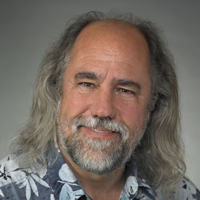 Grady is a world-renowned computer scientist who is recognized for his innovative work in software architecture and software engineering. Grady is an IBM Fellow and serves as Chief Scientist for Software Engineering at IBM Research. Most recently, he has been deeply involved in IBM’s work with cognitive systems, both in advancing the Watson platform and in looking beyond Watson to non-von Neuman architectures for intelligent systems. Grady is a Fellow of the Association for Computing Machinery and the Institute of Electrical and Electronics Engineers. He has also been awarded the Lovelace Medal and has given the Turing Lecture on behalf of the British Computer Society. Author of six best-selling books, Grady has published several hundred technical articles, has lectured extensively around the world to many audiences, and has consulted on the architecture of complex software-intensive systems in a multitude of domains. Currently, Grady is developing a major documentary project for broadcast on public television, in conjunction with the Computer History Museum.
Grady is a world-renowned computer scientist who is recognized for his innovative work in software architecture and software engineering. Grady is an IBM Fellow and serves as Chief Scientist for Software Engineering at IBM Research. Most recently, he has been deeply involved in IBM’s work with cognitive systems, both in advancing the Watson platform and in looking beyond Watson to non-von Neuman architectures for intelligent systems. Grady is a Fellow of the Association for Computing Machinery and the Institute of Electrical and Electronics Engineers. He has also been awarded the Lovelace Medal and has given the Turing Lecture on behalf of the British Computer Society. Author of six best-selling books, Grady has published several hundred technical articles, has lectured extensively around the world to many audiences, and has consulted on the architecture of complex software-intensive systems in a multitude of domains. Currently, Grady is developing a major documentary project for broadcast on public television, in conjunction with the Computer History Museum.
A Policy Wonk's Plea for More and Better Policy Research and Engagement from Computer Scientists
Chair
Greg Morrisett
 Greg Morrisett received his B.S. in Mathematics and Computer Science from the University of Richmond in 1989, and his Ph.D. from Carnegie Mellon in 1995. In 1996, he took an assistant professor position in the Computer Science Department of Cornell University, where he was promoted to associate professor with tenure in 2002. In the 2003-04 academic year, he took a sabbatical and visited the Microsoft European Research Laboratory. In 2004, he moved to Harvard as the Allen B. Cutting Professor of Computer Science, and served in the position of Associate Dean for Computer Science and Engineering from 2007-2010. Morrisett has received a number of awards for his research on programming languages, type systems, and software security, including a Presidential Early Career Award for Scientists and Engineers (presented at the White House in 2000), an IBM Faculty Fellowship, an NSF Career Award, and an Alfred P. Sloan Fellowship. He was recently made a Fellow of the ACM Personal Web Page
Greg Morrisett received his B.S. in Mathematics and Computer Science from the University of Richmond in 1989, and his Ph.D. from Carnegie Mellon in 1995. In 1996, he took an assistant professor position in the Computer Science Department of Cornell University, where he was promoted to associate professor with tenure in 2002. In the 2003-04 academic year, he took a sabbatical and visited the Microsoft European Research Laboratory. In 2004, he moved to Harvard as the Allen B. Cutting Professor of Computer Science, and served in the position of Associate Dean for Computer Science and Engineering from 2007-2010. Morrisett has received a number of awards for his research on programming languages, type systems, and software security, including a Presidential Early Career Award for Scientists and Engineers (presented at the White House in 2000), an IBM Faculty Fellowship, an NSF Career Award, and an Alfred P. Sloan Fellowship. He was recently made a Fellow of the ACM Personal Web Page
Speaker
Peter Swire
 Peter Swire in 2013 joined the Scheller College of Business of the Georgia Institute of Technology as the Nancy J. and Lawrence P. Huang Professor in the Law and Ethics Program. At Georgia Tech, he has appointments by courtesy with the College of Computing and School of Public Policy. Previously, Swire was the C. William O’Neill Professor of Law at the Ohio State University. Swire has been a leading privacy and cyberlaw scholar, government leader, and practitioner since the rise of the Internet in the 1990’s. In 2013, he served as one of five members of President Obama’s Review Group on Intelligence and Communications Technology. Prior to that, he was co-chair of the global Do Not Track process for the World Wide Web Consortium. He is a Senior Fellow with the Center for American Progress and the Future of Privacy Forum, and a Policy Fellow with the Center for Democracy and Technology. Under President Clinton, Swire was the Chief Counselor for Privacy in the U.S. Office of Management and Budget. He is the only person to date to have U.S. government-wide responsibility for privacy policy. In that role, his activities included being White House coordinator for the HIPAA medical privacy rules, chairing a White House task force on how to update wiretap laws for the Internet age, and helping negotiate the U.S.-E.U. Safe Harbor agreement for trans-border data flows. Under President Obama, he served as Special Assistant to the President for Economic Policy. Swire is author of five books and numerous scholarly papers. He has testified often before Congress, and been quoted regularly in the press. Swire has served on privacy and security advisory boards for companies including Google, IBM, Intel, and Microsoft, and for eight years was a consultant with the global law firm of Morrison & Foerster, LLP. Swire graduated from Princeton University, summa cum laude, and the Yale Law School, where he was an editor of the Yale Law Journal.
Peter Swire in 2013 joined the Scheller College of Business of the Georgia Institute of Technology as the Nancy J. and Lawrence P. Huang Professor in the Law and Ethics Program. At Georgia Tech, he has appointments by courtesy with the College of Computing and School of Public Policy. Previously, Swire was the C. William O’Neill Professor of Law at the Ohio State University. Swire has been a leading privacy and cyberlaw scholar, government leader, and practitioner since the rise of the Internet in the 1990’s. In 2013, he served as one of five members of President Obama’s Review Group on Intelligence and Communications Technology. Prior to that, he was co-chair of the global Do Not Track process for the World Wide Web Consortium. He is a Senior Fellow with the Center for American Progress and the Future of Privacy Forum, and a Policy Fellow with the Center for Democracy and Technology. Under President Clinton, Swire was the Chief Counselor for Privacy in the U.S. Office of Management and Budget. He is the only person to date to have U.S. government-wide responsibility for privacy policy. In that role, his activities included being White House coordinator for the HIPAA medical privacy rules, chairing a White House task force on how to update wiretap laws for the Internet age, and helping negotiate the U.S.-E.U. Safe Harbor agreement for trans-border data flows. Under President Obama, he served as Special Assistant to the President for Economic Policy. Swire is author of five books and numerous scholarly papers. He has testified often before Congress, and been quoted regularly in the press. Swire has served on privacy and security advisory boards for companies including Google, IBM, Intel, and Microsoft, and for eight years was a consultant with the global law firm of Morrison & Foerster, LLP. Swire graduated from Princeton University, summa cum laude, and the Yale Law School, where he was an editor of the Yale Law Journal.
Quantum Computing: Transforming the Digital Age
Chair
Eric Horvitz
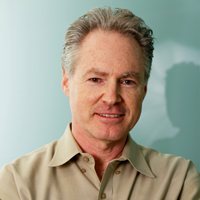 Eric Horvitz is managing director of the Microsoft Research Lab at Redmond, Washington. His interests span theoretical and practical challenges in machine intelligence. He has focused on probabilistic and decision-theoretic representations and reasoning, with contributions in machine learning, perception, inference, and decision making. His efforts have helped to bring multiple systems and services into the world, including innovations in healthcare, human-computer interaction, ecommerce, privacy, systems, and aerospace. He has been elected a fellow of AAAI, AAAS, the National Academy of Engineering, and the American Academy of Arts and Sciences, and has been inducted into the CHI Academy. He has served as president of the AAAI, chair of the AAAS Section on Information, Computing, and Communications, and on a several visiting committees and advisory boards, including the CCC, CISE Advisory Committee, DARPA ISAT, and the Allen Institute for Artificial Intelligence. Personal Web Page
Eric Horvitz is managing director of the Microsoft Research Lab at Redmond, Washington. His interests span theoretical and practical challenges in machine intelligence. He has focused on probabilistic and decision-theoretic representations and reasoning, with contributions in machine learning, perception, inference, and decision making. His efforts have helped to bring multiple systems and services into the world, including innovations in healthcare, human-computer interaction, ecommerce, privacy, systems, and aerospace. He has been elected a fellow of AAAI, AAAS, the National Academy of Engineering, and the American Academy of Arts and Sciences, and has been inducted into the CHI Academy. He has served as president of the AAAI, chair of the AAAS Section on Information, Computing, and Communications, and on a several visiting committees and advisory boards, including the CCC, CISE Advisory Committee, DARPA ISAT, and the Allen Institute for Artificial Intelligence. Personal Web Page
Speaker
Krysta Svore
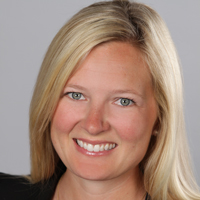 Dr. Krysta Svore is a Researcher at Microsoft Research in Redmond, Washington where she manages the Quantum Architectures and Computation group. Svore’s research includes the development and implementation of quantum algorithms, including the design of a scalable, fault-tolerant software architecture for translating a high-level quantum program into a low-level, device-specific quantum implementation, and the study of quantum error correction codes and noise thresholds. She has also developed machine-learning methods for web applications, including ranking, classification, and summarization algorithms. Dr. Svore received an ACM Best of 2013 Notable Article award. In 2010, she was a member of the winning team of the Yahoo! Learning to Rank Challenge. She received her Ph.D. in Computer Science with highest distinction from Columbia University in 2006 and her B.A. from Princeton University in Mathematics and French in 2001. She serves as a representative for the Academic Alliance of the National Center for Women and Information Technology (NCWIT) and is an active member of the American Physical Society (APS) and the Association for Computing Machinery (ACM).
Dr. Krysta Svore is a Researcher at Microsoft Research in Redmond, Washington where she manages the Quantum Architectures and Computation group. Svore’s research includes the development and implementation of quantum algorithms, including the design of a scalable, fault-tolerant software architecture for translating a high-level quantum program into a low-level, device-specific quantum implementation, and the study of quantum error correction codes and noise thresholds. She has also developed machine-learning methods for web applications, including ranking, classification, and summarization algorithms. Dr. Svore received an ACM Best of 2013 Notable Article award. In 2010, she was a member of the winning team of the Yahoo! Learning to Rank Challenge. She received her Ph.D. in Computer Science with highest distinction from Columbia University in 2006 and her B.A. from Princeton University in Mathematics and French in 2001. She serves as a representative for the Academic Alliance of the National Center for Women and Information Technology (NCWIT) and is an active member of the American Physical Society (APS) and the Association for Computing Machinery (ACM).
Toward New Recommended Practices for Hiring, Promotion, and Tenure
Chairs
Batya Friedman
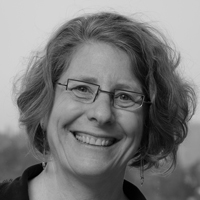 Batya Friedman is a Professor in the Information School, Adjunct Professor in the Department of Computer Science, and Adjunct Professor in the Department of Human-Centered Design and Engineering at the University of Washington where she co-directs the Value Sensitive Design Research Lab and co-directs the UW Tech Policy Lab. Dr. Friedman pioneered value sensitive design (VSD), an approach to account for human values in the design of information systems. First developed in human-computer interaction, VSD has since been used in information management, human-robotic interaction, computer security, civil engineering, applied philosophy, and land use and transportation. Her work has focused on a wide range of values, some include privacy in public, trust, freedom from bias, moral agency, sustainability, safety, calmness, freedom of expression, and human dignity; along with a range of technologies such as web browsers, urban simulation, robotics, open source tools, mobile computing, implantable medical devices, social media, ubiquitous computing and computing infrastructure. Dr. Friedman is currently working on multi-lifespan information system design and on methods for envisioning – imagining new ideas for leveraging information systems to shape our futures. Personal Web Page
Batya Friedman is a Professor in the Information School, Adjunct Professor in the Department of Computer Science, and Adjunct Professor in the Department of Human-Centered Design and Engineering at the University of Washington where she co-directs the Value Sensitive Design Research Lab and co-directs the UW Tech Policy Lab. Dr. Friedman pioneered value sensitive design (VSD), an approach to account for human values in the design of information systems. First developed in human-computer interaction, VSD has since been used in information management, human-robotic interaction, computer security, civil engineering, applied philosophy, and land use and transportation. Her work has focused on a wide range of values, some include privacy in public, trust, freedom from bias, moral agency, sustainability, safety, calmness, freedom of expression, and human dignity; along with a range of technologies such as web browsers, urban simulation, robotics, open source tools, mobile computing, implantable medical devices, social media, ubiquitous computing and computing infrastructure. Dr. Friedman is currently working on multi-lifespan information system design and on methods for envisioning – imagining new ideas for leveraging information systems to shape our futures. Personal Web Page
Fred Schneider
 Fred B. Schneider is Samuel B. Eckert Professor of Computer Science at Cornell University. In 2007, Schneider was elected to the board of directors of the Computing Research Association (CRA) and appointed to the steering committee of CRA's Computing Community Consortium. And he now chairs the Government Affairs committee of CRA. The U.S. National Academy of Engineering elected Schneider to membership in 2011, and the Norges Tekniske Vitenskapsakademi (Norwegian Academy of Technological Sciences) named him a foreign member in 2010. He was named Professor-at-Large at the University of Tromso (Norway) in 1996 and was awarded a Doctor of Science honoris causa by the University of NewCastle-upon-Tyne in 2003 for his work in computer dependability and security. He received the 2012 IEEE Emanuel R. Piore Award for "contributions to trustworthy computing through novel approaches to security, fault-tolerance and formal methods for concurrent and distributed systems". Personal Web Page
Fred B. Schneider is Samuel B. Eckert Professor of Computer Science at Cornell University. In 2007, Schneider was elected to the board of directors of the Computing Research Association (CRA) and appointed to the steering committee of CRA's Computing Community Consortium. And he now chairs the Government Affairs committee of CRA. The U.S. National Academy of Engineering elected Schneider to membership in 2011, and the Norges Tekniske Vitenskapsakademi (Norwegian Academy of Technological Sciences) named him a foreign member in 2010. He was named Professor-at-Large at the University of Tromso (Norway) in 1996 and was awarded a Doctor of Science honoris causa by the University of NewCastle-upon-Tyne in 2003 for his work in computer dependability and security. He received the 2012 IEEE Emanuel R. Piore Award for "contributions to trustworthy computing through novel approaches to security, fault-tolerance and formal methods for concurrent and distributed systems". Personal Web Page
Computing Visions 2025
Chair
Elizabeth Mynatt
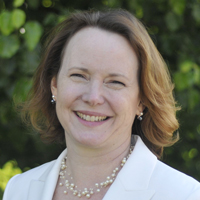 Elizabeth Mynatt is the executive director of the Institute for People and Technology and a professor of Interactive Computing at the Georgia Institute of Technology. Mynatt is an internationally recognized expert in the areas of ubiquitous computing and assistive technologies. Her research contributes to ongoing work in personal health informatics, computer-supported collaborative work and human-computer interface design. Themes in her current research include mobile technologies for chronic health management and social media technologies to promote wellness. She is also one of the principal researchers in the Aware Home Research Initiative; investigating the design of future home technologies, especially those that enable older adults to continue living independently as opposed to moving to an institutional care setting. Mynatt is a member of the ACM SIGCHI Academy, a Sloan and Kavli research fellow, and serves on Microsoft Research's Technical Advisory Board. Mynatt is the vice-chair of the Computing Community Consortium, an NSF-sponsored effort to engage the computing research community in envisioning more audacious research challenges. Prior to joining the Georgia Tech faculty in 1998, she was a member of the research staff at Xerox PARC. Mynatt earned her B.S. summa cum laude in computer science from North Carolina State University and her M.S. and Ph.D. in computer science from Georgia Tech. Personal Web Page
Elizabeth Mynatt is the executive director of the Institute for People and Technology and a professor of Interactive Computing at the Georgia Institute of Technology. Mynatt is an internationally recognized expert in the areas of ubiquitous computing and assistive technologies. Her research contributes to ongoing work in personal health informatics, computer-supported collaborative work and human-computer interface design. Themes in her current research include mobile technologies for chronic health management and social media technologies to promote wellness. She is also one of the principal researchers in the Aware Home Research Initiative; investigating the design of future home technologies, especially those that enable older adults to continue living independently as opposed to moving to an institutional care setting. Mynatt is a member of the ACM SIGCHI Academy, a Sloan and Kavli research fellow, and serves on Microsoft Research's Technical Advisory Board. Mynatt is the vice-chair of the Computing Community Consortium, an NSF-sponsored effort to engage the computing research community in envisioning more audacious research challenges. Prior to joining the Georgia Tech faculty in 1998, she was a member of the research staff at Xerox PARC. Mynatt earned her B.S. summa cum laude in computer science from North Carolina State University and her M.S. and Ph.D. in computer science from Georgia Tech. Personal Web Page
Speakers
David Culler
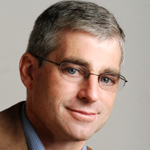 David Ethan Culler is a computer scientist and Chair of the Department of Electrical Engineering and Computer Sciences at the University of California, Berkeley. He is a Principal Investigator in the Software Defined Buildings (SDB) project at the EECS Department at Berkeley and the Faculty Director of the i4Energy Center. His research addresses networks of small, embedded wireless devices, planetary-scale internet services, parallel computer architecture, parallel programming languages, and high performance communication. This includes TinyOS, Berkeley Motes, PlanetLab, Networks of Workstations (NOW), Internet services, Active Message, Split-C, and the Threaded Abstract Machine (TAM). Personal Web Page.
David Ethan Culler is a computer scientist and Chair of the Department of Electrical Engineering and Computer Sciences at the University of California, Berkeley. He is a Principal Investigator in the Software Defined Buildings (SDB) project at the EECS Department at Berkeley and the Faculty Director of the i4Energy Center. His research addresses networks of small, embedded wireless devices, planetary-scale internet services, parallel computer architecture, parallel programming languages, and high performance communication. This includes TinyOS, Berkeley Motes, PlanetLab, Networks of Workstations (NOW), Internet services, Active Message, Split-C, and the Threaded Abstract Machine (TAM). Personal Web Page.
Limor Fix
 Limor has a Ph.D. in computer science from the Technion, Israel. After graduation, she conducted post-doc research at Cornell University and in 1994 joined Intel and worked at Intel for 20 years. Limor led a major change in Intel's validation technology and methodology. She developed innovative formal verification system that has been widely adopted by Intel's design teams. In this role, Limor led the development of a new formal specification language, ForSpec, that was donated by Intel to Accellera/IEEE and had a major impact in the IEEE-1850 standard. Limor also led the Intel’s research lab that was located at Carnegie Mellon University and had developed leading technologies in machine learning, vision, micro-architecture and other disciplines. Before retiring from Intel, Limor led the primary university-facing division of Intel Labs, in this role, she managed a wide variety of research grants to universities around the world. Limor has published more than 30 papers, she is the co-author of the book “Electronic Design Automation for Integrated Circuits handbook”, and she served as the general chair for the Design Automation Conference, the premier conference for VLSI design tools and methodologies. Personal Web Page.
Limor has a Ph.D. in computer science from the Technion, Israel. After graduation, she conducted post-doc research at Cornell University and in 1994 joined Intel and worked at Intel for 20 years. Limor led a major change in Intel's validation technology and methodology. She developed innovative formal verification system that has been widely adopted by Intel's design teams. In this role, Limor led the development of a new formal specification language, ForSpec, that was donated by Intel to Accellera/IEEE and had a major impact in the IEEE-1850 standard. Limor also led the Intel’s research lab that was located at Carnegie Mellon University and had developed leading technologies in machine learning, vision, micro-architecture and other disciplines. Before retiring from Intel, Limor led the primary university-facing division of Intel Labs, in this role, she managed a wide variety of research grants to universities around the world. Limor has published more than 30 papers, she is the co-author of the book “Electronic Design Automation for Integrated Circuits handbook”, and she served as the general chair for the Design Automation Conference, the premier conference for VLSI design tools and methodologies. Personal Web Page.
CS Education in K-12 at the National Scale
Chair
Jan Cuny
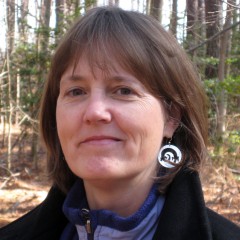 Since 2004, Jan Cuny has been the Program Officer for the CISE Broadening Participation in Computing (BPC) program at the National Science Foundation. Before coming to NSF, Jan was a faculty member in the Computer Science departments at Purdue University, the University of Massachusetts, and the University of Oregon. Her research centered on programming environments for computational science. At NSF, Dr. Cuny founded the BPC program. It aims to significantly increase the number of students getting postsecondary degrees in computing, with an initial emphasis on those groups – women, minorities, and persons with disabilities – who have traditionally been underrepresented in computing. BPC supports efforts from middle school through graduate school and the early faculty ranks. It currently has a portfolio of over $50 million in active awards. More importantly, it has built a national community of several hundred researchers and practitioners who actively collaborate on interventions that address underrepresentation.
Since 2004, Jan Cuny has been the Program Officer for the CISE Broadening Participation in Computing (BPC) program at the National Science Foundation. Before coming to NSF, Jan was a faculty member in the Computer Science departments at Purdue University, the University of Massachusetts, and the University of Oregon. Her research centered on programming environments for computational science. At NSF, Dr. Cuny founded the BPC program. It aims to significantly increase the number of students getting postsecondary degrees in computing, with an initial emphasis on those groups – women, minorities, and persons with disabilities – who have traditionally been underrepresented in computing. BPC supports efforts from middle school through graduate school and the early faculty ranks. It currently has a portfolio of over $50 million in active awards. More importantly, it has built a national community of several hundred researchers and practitioners who actively collaborate on interventions that address underrepresentation.
Speakers
Jeanne Century
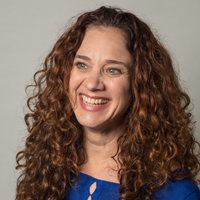 Dr. Jeanne Century is the Director of Outlier Research and Evaluation, a research group in the Center for Mathematics and Science Education in the Physical Sciences Division of the University of Chicago. Prior to coming to the University of Chicago in 2005, she was a Senior Researcher at Education Development Center (EDC) in Waltham MA. Century has a BA in general science from Brandeis University, and an MEd. and doctorate in science education curriculum and teaching from Boston University. During her 25-year career, Dr. Century has developed science instructional materials for the elementary and middle school levels and has provided professional development, technical assistance and strategic planning for teachers and school, district, and state administrators and policy makers. Her research has focused on the impact of inquiry science instruction, strategies for improving utilization of research and evaluation, sustainability of innovations in education, measurement of intervention fidelity and innovation implementation, STEM Schools, and computer science education. Century served on the Education Policy and Department of Education Agency Review transition teams for the Obama-Biden administration where she was responsible for STEM education and education research and development issues. In 2010, she shared the National Association for Research in Science Teaching award for the most significant publication that year. Century has served on numerous committees and advisory boards for work focused on improving STEM education. Personal Web Page.
Dr. Jeanne Century is the Director of Outlier Research and Evaluation, a research group in the Center for Mathematics and Science Education in the Physical Sciences Division of the University of Chicago. Prior to coming to the University of Chicago in 2005, she was a Senior Researcher at Education Development Center (EDC) in Waltham MA. Century has a BA in general science from Brandeis University, and an MEd. and doctorate in science education curriculum and teaching from Boston University. During her 25-year career, Dr. Century has developed science instructional materials for the elementary and middle school levels and has provided professional development, technical assistance and strategic planning for teachers and school, district, and state administrators and policy makers. Her research has focused on the impact of inquiry science instruction, strategies for improving utilization of research and evaluation, sustainability of innovations in education, measurement of intervention fidelity and innovation implementation, STEM Schools, and computer science education. Century served on the Education Policy and Department of Education Agency Review transition teams for the Obama-Biden administration where she was responsible for STEM education and education research and development issues. In 2010, she shared the National Association for Research in Science Teaching award for the most significant publication that year. Century has served on numerous committees and advisory boards for work focused on improving STEM education. Personal Web Page.
Dan Garcia
 Dan Garcia is a Senior Lecturer SOE in the EECS department at UC Berkeley. He received his PhD and MS in Computer Science from UC Berkeley in 2000 and 1995, and dual BS degrees in Computer Science and Electrical Engineering from MIT in 1990. He was chosen as an ACM Distinguished Educator in 2012. He is active participant in SIGCSE (having presented every year since 2001), and is currently working with the Ensemble computing portal and ICSI Teaching Privacy research projects. He serves on the ACM Education Board, the Advanced Placement Computer Science Principles Development Committee, is the faculty champion for the local CSTA chapter, and the faculty co-director for BFOIT, a wonderful Berkeley K-12 outreach effort. He is one of the co-developers the Beauty and Joy of Computing (BJC) course, which uses the Snap! programming language (based on Scratch). The course is a Computer Science Principles national pilot, and hundreds of high schools are now offering it, thanks to several years of NSF funding that offered professional development to teachers. In the Spring of 2013, his BJC Course had 106 women and 104 men, marking the first time that more women than men took an introductory computer science course at UC Berkeley (since they started digitizing records in 1993, and most believe ever, since the numbers were very bad in the earlier years). His research interests center around broadening participation, online instruction, digital libraries & communities, and computational game theory. Personal Web Page.
Dan Garcia is a Senior Lecturer SOE in the EECS department at UC Berkeley. He received his PhD and MS in Computer Science from UC Berkeley in 2000 and 1995, and dual BS degrees in Computer Science and Electrical Engineering from MIT in 1990. He was chosen as an ACM Distinguished Educator in 2012. He is active participant in SIGCSE (having presented every year since 2001), and is currently working with the Ensemble computing portal and ICSI Teaching Privacy research projects. He serves on the ACM Education Board, the Advanced Placement Computer Science Principles Development Committee, is the faculty champion for the local CSTA chapter, and the faculty co-director for BFOIT, a wonderful Berkeley K-12 outreach effort. He is one of the co-developers the Beauty and Joy of Computing (BJC) course, which uses the Snap! programming language (based on Scratch). The course is a Computer Science Principles national pilot, and hundreds of high schools are now offering it, thanks to several years of NSF funding that offered professional development to teachers. In the Spring of 2013, his BJC Course had 106 women and 104 men, marking the first time that more women than men took an introductory computer science course at UC Berkeley (since they started digitizing records in 1993, and most believe ever, since the numbers were very bad in the earlier years). His research interests center around broadening participation, online instruction, digital libraries & communities, and computational game theory. Personal Web Page.
Susanne Hambrusch
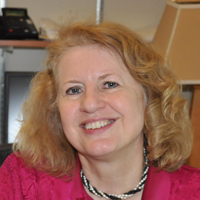 Susanne Hambrusch is a professor of computer science at Purdue University. She served as the Department Head from 2002 to 2007. Her research interests are in query and data management, computer science education, parallel and distributed computation, and analysis of algorithms. She received the Diplom Ingenieur in Computer Science from the Technical University of Vienna, Austria, and a Ph.D. in Computer Science from Penn State. Susanne has lead two projects in computer science education, "Science Education in Computational Thinking (SECANT)” and “Computer Science for Education (CS4EDU)” and she is currently involved in a establishing an evidence-based professional development (PD) program to improve teachers' knowledge to teach computer science. Susanne has served on the board of directors of the Computing Research Association (CRA) and the CRA Committee on the Status of Women in Computing Research (CRA-W). She currently serves on CRA's Taulbee Survey Committee and she is a co-chair on CRA’s Education committee. From 2010 to 2013, Susanne served as the Director of the Computing and Communication Foundations (CCF) Division in the CISE Directorate at NSF. She successfully led the development of several new crosscutting research programs and she worked tirelessly to increase the number of Graduate Research Fellowships for students pursuing computing disciplines. Personal Web Page.
Susanne Hambrusch is a professor of computer science at Purdue University. She served as the Department Head from 2002 to 2007. Her research interests are in query and data management, computer science education, parallel and distributed computation, and analysis of algorithms. She received the Diplom Ingenieur in Computer Science from the Technical University of Vienna, Austria, and a Ph.D. in Computer Science from Penn State. Susanne has lead two projects in computer science education, "Science Education in Computational Thinking (SECANT)” and “Computer Science for Education (CS4EDU)” and she is currently involved in a establishing an evidence-based professional development (PD) program to improve teachers' knowledge to teach computer science. Susanne has served on the board of directors of the Computing Research Association (CRA) and the CRA Committee on the Status of Women in Computing Research (CRA-W). She currently serves on CRA's Taulbee Survey Committee and she is a co-chair on CRA’s Education committee. From 2010 to 2013, Susanne served as the Director of the Computing and Communication Foundations (CCF) Division in the CISE Directorate at NSF. She successfully led the development of several new crosscutting research programs and she worked tirelessly to increase the number of Graduate Research Fellowships for students pursuing computing disciplines. Personal Web Page.
Computing Research Futures
Chair
Gregory Hager
 Gregory D. Hager is a Professor and Chair of Computer Science at Johns Hopkins University. He received his BA from Luther College and his MSE and PhD from the University of Pennsylvania in 1986 and 1988, respectively. After a year as a Fulbright scholar at the University of Karlsruhe, he joined the faculty of Yale University in 1990. He moved to Johns Hopkins in 1999. His research interests include image-guided robotics, human-machine collaboration, and medical applications of image analysis and robotics. He has served as the Deputy Director of the NSF Engineering Research Center for Computer Integrated Surgical Systems and Technology, he serves on board of the International Federation of Robotics Research, and he is a fellow of the IEEE for his contributions in vision-based robotics. He serves as Chair of the Computing Community Consortium. Personal Web Page.
Gregory D. Hager is a Professor and Chair of Computer Science at Johns Hopkins University. He received his BA from Luther College and his MSE and PhD from the University of Pennsylvania in 1986 and 1988, respectively. After a year as a Fulbright scholar at the University of Karlsruhe, he joined the faculty of Yale University in 1990. He moved to Johns Hopkins in 1999. His research interests include image-guided robotics, human-machine collaboration, and medical applications of image analysis and robotics. He has served as the Deputy Director of the NSF Engineering Research Center for Computer Integrated Surgical Systems and Technology, he serves on board of the International Federation of Robotics Research, and he is a fellow of the IEEE for his contributions in vision-based robotics. He serves as Chair of the Computing Community Consortium. Personal Web Page.
Speaker: Big Data, Data Science, and other Buzzwords that Really Matter
Michael Franklin
 Michael Franklin is the Thomas M. Siebel Professor of Computer Science and incoming Chair of Computer Science at UC Berkeley where he also serves as Director of the Algorithms, Machines and People Lab (AMPLab). The Berkeley AMPLab is integrating machine learning, scalable computing, and human computation to develop a next generation Big Data analytics platform. Components of this platform, including the Spark and Shark analytics frameworks and the Mesos virtualization layer have become key parts of the emerging Big Data ecosystem. AMPLab is supported by 24 leading companies including founding sponsors Amazon Web Services, Google, and SAP and received an NSF Expeditions in Computing award, which was announced by the White House in 2012. Franklin was founder and CTO of Truviso, a real-time data analytics company acquired by Cisco Systems. He is an ACM Fellow and two-time winner of the ACM SIGMOD Test of Time Award. Personal Web Page.
Michael Franklin is the Thomas M. Siebel Professor of Computer Science and incoming Chair of Computer Science at UC Berkeley where he also serves as Director of the Algorithms, Machines and People Lab (AMPLab). The Berkeley AMPLab is integrating machine learning, scalable computing, and human computation to develop a next generation Big Data analytics platform. Components of this platform, including the Spark and Shark analytics frameworks and the Mesos virtualization layer have become key parts of the emerging Big Data ecosystem. AMPLab is supported by 24 leading companies including founding sponsors Amazon Web Services, Google, and SAP and received an NSF Expeditions in Computing award, which was announced by the White House in 2012. Franklin was founder and CTO of Truviso, a real-time data analytics company acquired by Cisco Systems. He is an ACM Fellow and two-time winner of the ACM SIGMOD Test of Time Award. Personal Web Page.
Speaker: Socially Assistive Technologies: Creating Machines That Care
Maja Mataric'
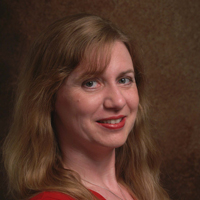 Maja Mataric´ is the Chan Soon-Shiong chaired professor of Computer Science, Neuroscience, and Pediatrics at the University of Southern California, founding director of the USC Robotics and Autonomous Systems Center, co-director of the Robotics Research Lab, and Vice Dean for Research in the Viterbi School of Engineering. She received a PhD in Computer Science and AI from MIT (1994), MS in CS from MIT (1990), and BS in CS from the University of Kansas (1987). She is Fellow of AAAS and IEEE, and recipient of the Presidential Award for Excellence in Science, Mathematics and Engineering Mentoring (PAESMEM), Anita Borg Institute Women of Vision Award in Innovation, the Okawa Foundation, NSF Career, MIT TR35 Innovation, and IEEE Robotics and Automation Society Early Career Awards. She is featured in the documentary "Me & Isaac Newton", in the 2009 New Yorker article "Robots that Care", and is one of 5 LA Times Magazine 2010 Visionaries. She is the author of a popular introductory robotics textbook, “The Robotics Primer” from MIT Press, is associate editor of three major journals, has published extensively, serves on a number of advisory boards, and is very active in K-12 STEM outreach. Her research into socially assistive robotics aims to endow robots with the ability to help people through non-contact assistance in convalescence, rehabilitation, training, and education. Her lab is developing robot-assisted therapies for children with autism, stroke survivors, Alzheimer's patients and other populations. Personal Web Page.
Maja Mataric´ is the Chan Soon-Shiong chaired professor of Computer Science, Neuroscience, and Pediatrics at the University of Southern California, founding director of the USC Robotics and Autonomous Systems Center, co-director of the Robotics Research Lab, and Vice Dean for Research in the Viterbi School of Engineering. She received a PhD in Computer Science and AI from MIT (1994), MS in CS from MIT (1990), and BS in CS from the University of Kansas (1987). She is Fellow of AAAS and IEEE, and recipient of the Presidential Award for Excellence in Science, Mathematics and Engineering Mentoring (PAESMEM), Anita Borg Institute Women of Vision Award in Innovation, the Okawa Foundation, NSF Career, MIT TR35 Innovation, and IEEE Robotics and Automation Society Early Career Awards. She is featured in the documentary "Me & Isaac Newton", in the 2009 New Yorker article "Robots that Care", and is one of 5 LA Times Magazine 2010 Visionaries. She is the author of a popular introductory robotics textbook, “The Robotics Primer” from MIT Press, is associate editor of three major journals, has published extensively, serves on a number of advisory boards, and is very active in K-12 STEM outreach. Her research into socially assistive robotics aims to endow robots with the ability to help people through non-contact assistance in convalescence, rehabilitation, training, and education. Her lab is developing robot-assisted therapies for children with autism, stroke survivors, Alzheimer's patients and other populations. Personal Web Page.
Town Hall Meeting on Topics of Great Relevance
Chair
Greg Morrisett
 Greg Morrisett received his B.S. in Mathematics and Computer Science from the University of Richmond in 1989, and his Ph.D. from Carnegie Mellon in 1995. In 1996, he took an assistant professor position in the Computer Science Department of Cornell University, where he was promoted to associate professor with tenure in 2002. In the 2003-04 academic year, he took a sabbatical and visited the Microsoft European Research Laboratory. In 2004, he moved to Harvard as the Allen B. Cutting Professor of Computer Science, and served in the position of Associate Dean for Computer Science and Engineering from 2007-2010. Morrisett has received a number of awards for his research on programming languages, type systems, and software security, including a Presidential Early Career Award for Scientists and Engineers (presented at the White House in 2000), an IBM Faculty Fellowship, an NSF Career Award, and an Alfred P. Sloan Fellowship. He was recently made a Fellow of the ACM. Personal Web Page.
Greg Morrisett received his B.S. in Mathematics and Computer Science from the University of Richmond in 1989, and his Ph.D. from Carnegie Mellon in 1995. In 1996, he took an assistant professor position in the Computer Science Department of Cornell University, where he was promoted to associate professor with tenure in 2002. In the 2003-04 academic year, he took a sabbatical and visited the Microsoft European Research Laboratory. In 2004, he moved to Harvard as the Allen B. Cutting Professor of Computer Science, and served in the position of Associate Dean for Computer Science and Engineering from 2007-2010. Morrisett has received a number of awards for his research on programming languages, type systems, and software security, including a Presidential Early Career Award for Scientists and Engineers (presented at the White House in 2000), an IBM Faculty Fellowship, an NSF Career Award, and an Alfred P. Sloan Fellowship. He was recently made a Fellow of the ACM. Personal Web Page.
Organizer: Developing a Consistent Timeline for Graduate Student Acceptance Notifications
Andrew Appel
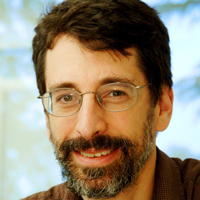 Andrew Appelis Eugene Higgins Professor and Chairman of the Department of Computer Science at Princeton University. His research is in software verification, computer security, programming languages and compilers, and technology policy. He received his A.B. summa cum laude in physics from Princeton in 1981, and his PhD in computer science from Carnegie Mellon University in 1985. He has been Editor in Chief of ACM Transactions on Programming Languages and Systems and is a Fellow of the ACM (Association for Computing Machinery). He has worked on fast N-body algorithms (1980s), Standard ML of New Jersey (1990s), Foundational Proof-Carrying Code (2000s), and the Verified Software Toolchain (2010s). Personal Web Page.
Andrew Appelis Eugene Higgins Professor and Chairman of the Department of Computer Science at Princeton University. His research is in software verification, computer security, programming languages and compilers, and technology policy. He received his A.B. summa cum laude in physics from Princeton in 1981, and his PhD in computer science from Carnegie Mellon University in 1985. He has been Editor in Chief of ACM Transactions on Programming Languages and Systems and is a Fellow of the ACM (Association for Computing Machinery). He has worked on fast N-body algorithms (1980s), Standard ML of New Jersey (1990s), Foundational Proof-Carrying Code (2000s), and the Verified Software Toolchain (2010s). Personal Web Page.
Organizers: Socially Assistive Technologies: Creating Machines That Care
Jim Kurose
 Jim Kurose received a B.A. degree in physics from Wesleyan University and his Ph.D. degree in computer science from Columbia University. He is currently Distinguished University Professor in the Department of Computer Science. Professor Kurose has been a Visiting Scientist at IBM Research, INRIA, Institut EURECOM , the University of Paris, the Laboratory for Information, Network and Communication Sciences, and Technicolor Research Labs. He has previously served in a number of campus administrative roles including Chair of the Department of Computer Science, Interim Dean of the College of Natural Sciences and Mathematics, Executive Associate Dean of the College of Natural Sciences , and senior faculty advisor for science and engineering for the Vice Chancellor for Research and Engagement. Personal Web Page.
Jim Kurose received a B.A. degree in physics from Wesleyan University and his Ph.D. degree in computer science from Columbia University. He is currently Distinguished University Professor in the Department of Computer Science. Professor Kurose has been a Visiting Scientist at IBM Research, INRIA, Institut EURECOM , the University of Paris, the Laboratory for Information, Network and Communication Sciences, and Technicolor Research Labs. He has previously served in a number of campus administrative roles including Chair of the Department of Computer Science, Interim Dean of the College of Natural Sciences and Mathematics, Executive Associate Dean of the College of Natural Sciences , and senior faculty advisor for science and engineering for the Vice Chancellor for Research and Engagement. Personal Web Page.
Edward Lazowska
 Ed Lazowska holds the Bill & Melinda Gates Chair in Computer Science & Engineering at the University of Washington, where he also serves as the Founding Director of the University of Washington eScience Institute. Lazowska received his A.B. from Brown University and his Ph.D. from the University of Toronto. His research and teaching concern the design, implementation, and analysis of high performance computing and communication systems, and, more recently, the techniques and technologies of data-intensive discovery. He has also been active in public policy issues, ranging from STEM education to Federal strategies for research and innovation. Lazowska is a Member of the National Academy of Engineering and a Fellow of the American Academy of Arts & Sciences. He has served on the Technical Advisory Board for Microsoft Research since its inception, and serves as a board member or technical advisor for a number of high-tech companies, venture firms, and technology-oriented civic organizations. He served as Chair of CRA from 1997-2001, and as Founding Chair of CRA’s Computing Community Consortium from 2007-2013. A long-time advocate for increasing participation in the field, Lazowska serves on the Executive Advisory Council of the National Center for Women & Information Technology, and on the National Research Council's Committee on Women in Science, Engineering, and Medicine. He received the University of Washington Outstanding Public Service Award for his K-12 outreach activities, and the UW Computer Science & Engineering Undergraduate Teaching Award. Personal Web Page.
Ed Lazowska holds the Bill & Melinda Gates Chair in Computer Science & Engineering at the University of Washington, where he also serves as the Founding Director of the University of Washington eScience Institute. Lazowska received his A.B. from Brown University and his Ph.D. from the University of Toronto. His research and teaching concern the design, implementation, and analysis of high performance computing and communication systems, and, more recently, the techniques and technologies of data-intensive discovery. He has also been active in public policy issues, ranging from STEM education to Federal strategies for research and innovation. Lazowska is a Member of the National Academy of Engineering and a Fellow of the American Academy of Arts & Sciences. He has served on the Technical Advisory Board for Microsoft Research since its inception, and serves as a board member or technical advisor for a number of high-tech companies, venture firms, and technology-oriented civic organizations. He served as Chair of CRA from 1997-2001, and as Founding Chair of CRA’s Computing Community Consortium from 2007-2013. A long-time advocate for increasing participation in the field, Lazowska serves on the Executive Advisory Council of the National Center for Women & Information Technology, and on the National Research Council's Committee on Women in Science, Engineering, and Medicine. He received the University of Washington Outstanding Public Service Award for his K-12 outreach activities, and the UW Computer Science & Engineering Undergraduate Teaching Award. Personal Web Page.
Broadening the Computing Research Community
Chair
Susan Davidson
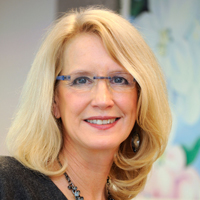 Susan B. Davidson received the B.A. degree in Mathematics from Cornell University in 1978, and the Ph.D. degree in Computer Science from Princeton University in 1982. Dr. Davidson joined the University of Pennsylvania in 1982, and is now the Weiss Professor of Computer and Information Science (CIS). She is an ACM Fellow, a Fulbright scholar, and has served as Deputy Dean of the School of Engineering and Applied Science and as Department Chair of CIS. Prior to this, she was a founding co-Director of the Penn Center for Bioinformatics and of the Greater Philadelphia Bioinformatics Alliance. As Deputy Dean, Dr. Davidson established a mentoring policy and oversight structure for SEAS, and founded the Advancing Women in Engineering (AWE) program. AWE is dedicated to recruiting, retaining, and promoting women in Penn Engineering. In addition to programs for existing students, AWE has created a pre-orientation program for women entering the program, and a highly successful outreach program for middle school girls called PennGEMS. Dr. Davidson's research interests include database systems, database modeling, database integration, distributed systems, data citation, bioinformatics and scientific workflow systems. Within bioinformatics she is best known for her work in data integration strategies, XML query and update technologies, and in provenance for scientific workflows. Personal Web Page.
Susan B. Davidson received the B.A. degree in Mathematics from Cornell University in 1978, and the Ph.D. degree in Computer Science from Princeton University in 1982. Dr. Davidson joined the University of Pennsylvania in 1982, and is now the Weiss Professor of Computer and Information Science (CIS). She is an ACM Fellow, a Fulbright scholar, and has served as Deputy Dean of the School of Engineering and Applied Science and as Department Chair of CIS. Prior to this, she was a founding co-Director of the Penn Center for Bioinformatics and of the Greater Philadelphia Bioinformatics Alliance. As Deputy Dean, Dr. Davidson established a mentoring policy and oversight structure for SEAS, and founded the Advancing Women in Engineering (AWE) program. AWE is dedicated to recruiting, retaining, and promoting women in Penn Engineering. In addition to programs for existing students, AWE has created a pre-orientation program for women entering the program, and a highly successful outreach program for middle school girls called PennGEMS. Dr. Davidson's research interests include database systems, database modeling, database integration, distributed systems, data citation, bioinformatics and scientific workflow systems. Within bioinformatics she is best known for her work in data integration strategies, XML query and update technologies, and in provenance for scientific workflows. Personal Web Page.
Speaker
Maria Klawe
 Maria Klawe became Harvey Mudd College’s fifth president in 2006. A renowned mathematician, computer scientist and scholar, President Klawe is the first woman to lead the College since its 1955 founding. Prior to joining Harvey Mudd College, she served as dean of engineering and professor of computer science at Princeton University. Personal Web Page.
Maria Klawe became Harvey Mudd College’s fifth president in 2006. A renowned mathematician, computer scientist and scholar, President Klawe is the first woman to lead the College since its 1955 founding. Prior to joining Harvey Mudd College, she served as dean of engineering and professor of computer science at Princeton University. Personal Web Page.
Refining the Computer Science Postdoc Experience
Chair
Bob Sproull
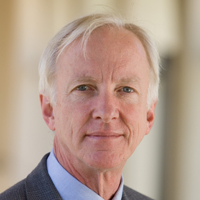 Robert F. Sproull recently retired as Vice President and Director of Oracle Labs, an applied research group that originated at Sun Microsystems. Since undergraduate days, he has been building hardware and software for computer graphics: clipping hardware, an early device-independent graphics package, page description languages, laser printing software, and window systems. He has also been involved in VLSI design, especially of asynchronous circuits and systems. Before joining Sun Microsystems in 1990 (acquired by Oracle in 2010), he was a principal with Sutherland, Sproull and Associates, an associate professor at Carnegie Mellon University and a member of the Xerox Palo Alto Research Center. He is a coauthor with William Newman of the early text, “Principles of Interactive Computer Graphics.” He is also an author of the book “Logical Effort,” which deals with designing fast CMOS circuits. He is a member of the National Academy of Engineering, a fellow of the American Academy of Arts and Sciences, and has served on the US Air Force Scientific Advisory Board and as a technology partner of Advanced Technology Ventures. He is currently the chair of the National Research Council’s Computer Science and Telecommunications Board, a director of Applied Micro Circuits Inc., and an adjunct professor of computer science at University of Massachusetts, Amherst.
Robert F. Sproull recently retired as Vice President and Director of Oracle Labs, an applied research group that originated at Sun Microsystems. Since undergraduate days, he has been building hardware and software for computer graphics: clipping hardware, an early device-independent graphics package, page description languages, laser printing software, and window systems. He has also been involved in VLSI design, especially of asynchronous circuits and systems. Before joining Sun Microsystems in 1990 (acquired by Oracle in 2010), he was a principal with Sutherland, Sproull and Associates, an associate professor at Carnegie Mellon University and a member of the Xerox Palo Alto Research Center. He is a coauthor with William Newman of the early text, “Principles of Interactive Computer Graphics.” He is also an author of the book “Logical Effort,” which deals with designing fast CMOS circuits. He is a member of the National Academy of Engineering, a fellow of the American Academy of Arts and Sciences, and has served on the US Air Force Scientific Advisory Board and as a technology partner of Advanced Technology Ventures. He is currently the chair of the National Research Council’s Computer Science and Telecommunications Board, a director of Applied Micro Circuits Inc., and an adjunct professor of computer science at University of Massachusetts, Amherst.
Speakers
Gaetano Borriello
 Professor Gaetano Borriello holds the Jerre D. Noe Chair of Computer Science & Engineering at the University of Washington. He joined the Department in 1988 and holds a PhD in CS from the University of California at Berkeley (1988). From 2001-2003, he founded Intel Research Seattle which quickly became one of the premier research labs for work in ubiquitous computing. His career began in the areas of integrated circuits for networking, synthesis of digital circuits, reconfigurable hardware, and embedded systems development tools. In 1999, he was PI for the Portolano Expedition, a DARPA-sponsored investigation on invisible computing that led to the creation of Labscape, a smart environment to record and assist the work of researchers in cell biology laboratories. In 2001, as director of Intel Research Seattle, he set in motion projects in sensor-rich homes and wearable devices to help elders stay in their own homes longer, and in location-aware computing (the PlaceLab project) using Wi-Fi to enhance location sensing. Prof. Borriello is now directing efforts in applying mobile and sensor technologies to the problems of public health and development in low-resource settings. His group's open-source mobile data collection tools, Open Data Kit, are in use on six continents in programs ranging across public health, documentation of human rights violations, and environmental monitoring. He is a Fellow of the ACM and IEEE, a Fulbright Scholar, and a recipient of the UW Distinguished Teaching and Landolt Graduate Mentor Awards. Personal Web Page.
Professor Gaetano Borriello holds the Jerre D. Noe Chair of Computer Science & Engineering at the University of Washington. He joined the Department in 1988 and holds a PhD in CS from the University of California at Berkeley (1988). From 2001-2003, he founded Intel Research Seattle which quickly became one of the premier research labs for work in ubiquitous computing. His career began in the areas of integrated circuits for networking, synthesis of digital circuits, reconfigurable hardware, and embedded systems development tools. In 1999, he was PI for the Portolano Expedition, a DARPA-sponsored investigation on invisible computing that led to the creation of Labscape, a smart environment to record and assist the work of researchers in cell biology laboratories. In 2001, as director of Intel Research Seattle, he set in motion projects in sensor-rich homes and wearable devices to help elders stay in their own homes longer, and in location-aware computing (the PlaceLab project) using Wi-Fi to enhance location sensing. Prof. Borriello is now directing efforts in applying mobile and sensor technologies to the problems of public health and development in low-resource settings. His group's open-source mobile data collection tools, Open Data Kit, are in use on six continents in programs ranging across public health, documentation of human rights violations, and environmental monitoring. He is a Fellow of the ACM and IEEE, a Fulbright Scholar, and a recipient of the UW Distinguished Teaching and Landolt Graduate Mentor Awards. Personal Web Page.
Brent Hailpern
 Brent Hailpern is Director of Computer Science for IBM Research, located at Almaden Research Center in San Jose, CA. He is a Fellow of the ACM and the IEEE. He has worked at IBM since 1980, with most of that time at IBM Research. His personal research interests are in programming languages, concurrent systems and object-oriented systems. Brent has managed projects and departments in programming languages, software engineering and environments, operating systems, multimedia systems, Internet and pervasive technologies, workflow, email, HCI, and K-12 education. He has also worked in IBM corporate headquarters and as a software product manager. Until 2011, he was the Director of Programming Models and Tools at the IBM Thomas J. Watson Research Center, in Hawthorne, New York.He is currently a member of the ACM SIG Governing Board, ACM Council, the NSF CISE Advisory Committee, and the CRA Board of Directors. Personal Web Page.
Brent Hailpern is Director of Computer Science for IBM Research, located at Almaden Research Center in San Jose, CA. He is a Fellow of the ACM and the IEEE. He has worked at IBM since 1980, with most of that time at IBM Research. His personal research interests are in programming languages, concurrent systems and object-oriented systems. Brent has managed projects and departments in programming languages, software engineering and environments, operating systems, multimedia systems, Internet and pervasive technologies, workflow, email, HCI, and K-12 education. He has also worked in IBM corporate headquarters and as a software product manager. Until 2011, he was the Director of Programming Models and Tools at the IBM Thomas J. Watson Research Center, in Hawthorne, New York.He is currently a member of the ACM SIG Governing Board, ACM Council, the NSF CISE Advisory Committee, and the CRA Board of Directors. Personal Web Page.
Julia Hirschberg
 Julia Hirschberg is Percy K. and Vida L. W. Hudson Professor of Computer Science and Chair of the Computer Science Department at Columbia University. She worked at Bell Laboratories and AT&T Laboratories -- Research from 1985-2003 as a Member of Technical Staff and a Department Head, creating the Human-Computer Interface Research Department in 1994. She served as editor-in-chief of Computational Linguistics from 1993-2003 and co-editor-in-chief of Speech Communication from 2003-2006. She served on the Executive Board of the Association for Computational Linguistics (ACL) from 1993-2003, on the Permanent Council of International Conference on Spoken Language Processing (ICSLP) since 1996, and on the board of the International Speech Communication Association (ISCA) from 1999-2007 (as President 2005-2007). She now serves on the IEEE Speech and Language Processing Technical Committee, the Association for the Advancement of Artificial Intelligence (AAAI) Council, and the Executive Board of the North American ACL. She has been an AAAI fellow since 1994, an ISCA Fellow since 2008, and a (founding) ACL Fellow since 2011. She was elected to the American Philosophical Society in 2014. Personal Web Page.
Julia Hirschberg is Percy K. and Vida L. W. Hudson Professor of Computer Science and Chair of the Computer Science Department at Columbia University. She worked at Bell Laboratories and AT&T Laboratories -- Research from 1985-2003 as a Member of Technical Staff and a Department Head, creating the Human-Computer Interface Research Department in 1994. She served as editor-in-chief of Computational Linguistics from 1993-2003 and co-editor-in-chief of Speech Communication from 2003-2006. She served on the Executive Board of the Association for Computational Linguistics (ACL) from 1993-2003, on the Permanent Council of International Conference on Spoken Language Processing (ICSLP) since 1996, and on the board of the International Speech Communication Association (ISCA) from 1999-2007 (as President 2005-2007). She now serves on the IEEE Speech and Language Processing Technical Committee, the Association for the Advancement of Artificial Intelligence (AAAI) Council, and the Executive Board of the North American ACL. She has been an AAAI fellow since 1994, an ISCA Fellow since 2008, and a (founding) ACL Fellow since 2011. She was elected to the American Philosophical Society in 2014. Personal Web Page.
Jane Stout
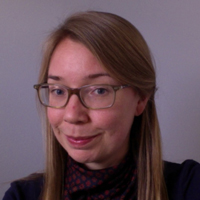 Jane Stout joined the CRA in 2013 as the Director of the Center for the Evaluating the Research Pipeline (CERP). Through her work, she leads comparative evaluation of the computing communities' many initiatives aimed at increasing demographic diversity in computing. She and her team at CERP focus specifically on increasing the number of women and individuals from other underrepresented groups in computing, both in the academy and industry. Jane obtained her Ph.D. in social psychology in 2011 at The University of Massachusetts Amherst with a concentration in quantitative methods. There, she focused on understanding the many reasons why women pursue and persist in science, technology, engineering and mathematics less often than men. She continued this program of research as a Postdoctoral Research Associate for two years at The University of Colorado Boulder before becoming the Director of CERP. She is eager to apply her methodological and statistical training to study the efficacy of interventions aimed at increasing diversity in computing.
Jane Stout joined the CRA in 2013 as the Director of the Center for the Evaluating the Research Pipeline (CERP). Through her work, she leads comparative evaluation of the computing communities' many initiatives aimed at increasing demographic diversity in computing. She and her team at CERP focus specifically on increasing the number of women and individuals from other underrepresented groups in computing, both in the academy and industry. Jane obtained her Ph.D. in social psychology in 2011 at The University of Massachusetts Amherst with a concentration in quantitative methods. There, she focused on understanding the many reasons why women pursue and persist in science, technology, engineering and mathematics less often than men. She continued this program of research as a Postdoctoral Research Associate for two years at The University of Colorado Boulder before becoming the Director of CERP. She is eager to apply her methodological and statistical training to study the efficacy of interventions aimed at increasing diversity in computing.
From Data to Insight to Change: Technologies and Opportunities
Chair
Laura Haas
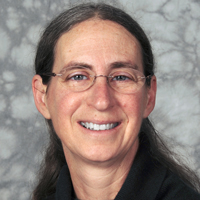 Laura Haas is an IBM Fellow and Director of IBM Research’s Accelerated Discovery Lab. She was Director of Computer Science at IBM’s Almaden Research Center from 2005 to 2011, and had worldwide responsibility for IBM Research’s exploratory science program from 2009 through 2013. From 2001-2005, she led Information Integration Solutions architecture and development teams in IBM's Software Group. Previously, Dr. Haas was a research staff member and manager at Almaden. She is best known for her work on the Starburst query processor, from which DB2 LUW was developed, on Garlic, a system which allowed integration of heterogeneous data sources, and on Clio, the first semi-automatic tool for heterogeneous schema mapping. She has received several IBM awards for Outstanding Innovation and Technical Achievement, an IBM Corporate Award for information integration technology, and the Anita Borg Institute Technical Leadership Award. Dr. Haas was Vice President of the VLDB Endowment Board of Trustees from 2004-2009, and is a member of the National Academy of Engineering and the IBM Academy of Technology, an ACM Fellow, and Vice Chair of the board of the Computing Research Association. Personal Web Page.
Laura Haas is an IBM Fellow and Director of IBM Research’s Accelerated Discovery Lab. She was Director of Computer Science at IBM’s Almaden Research Center from 2005 to 2011, and had worldwide responsibility for IBM Research’s exploratory science program from 2009 through 2013. From 2001-2005, she led Information Integration Solutions architecture and development teams in IBM's Software Group. Previously, Dr. Haas was a research staff member and manager at Almaden. She is best known for her work on the Starburst query processor, from which DB2 LUW was developed, on Garlic, a system which allowed integration of heterogeneous data sources, and on Clio, the first semi-automatic tool for heterogeneous schema mapping. She has received several IBM awards for Outstanding Innovation and Technical Achievement, an IBM Corporate Award for information integration technology, and the Anita Borg Institute Technical Leadership Award. Dr. Haas was Vice President of the VLDB Endowment Board of Trustees from 2004-2009, and is a member of the National Academy of Engineering and the IBM Academy of Technology, an ACM Fellow, and Vice Chair of the board of the Computing Research Association. Personal Web Page.
Speakers
Eric Horvitz
 Eric Horvitz is managing director of the Microsoft Research Lab at Redmond, Washington. His interests span theoretical and practical challenges in machine intelligence. He has focused on probabilistic and decision-theoretic representations and reasoning, with contributions in machine learning, perception, inference, and decision making. His efforts have helped to bring multiple systems and services into the world, including innovations in healthcare, human-computer interaction, ecommerce, privacy, systems, and aerospace. He has been elected a fellow of AAAI, AAAS, the National Academy of Engineering, and the American Academy of Arts and Sciences, and has been inducted into the CHI Academy. He has served as president of the AAAI, chair of the AAAS Section on Information, Computing, and Communications, and on a several visiting committees and advisory boards, including the CCC, CISE Advisory Committee, DARPA ISAT, and the Allen Institute for Artificial Intelligence. Personal Web Page.
Eric Horvitz is managing director of the Microsoft Research Lab at Redmond, Washington. His interests span theoretical and practical challenges in machine intelligence. He has focused on probabilistic and decision-theoretic representations and reasoning, with contributions in machine learning, perception, inference, and decision making. His efforts have helped to bring multiple systems and services into the world, including innovations in healthcare, human-computer interaction, ecommerce, privacy, systems, and aerospace. He has been elected a fellow of AAAI, AAAS, the National Academy of Engineering, and the American Academy of Arts and Sciences, and has been inducted into the CHI Academy. He has served as president of the AAAI, chair of the AAAS Section on Information, Computing, and Communications, and on a several visiting committees and advisory boards, including the CCC, CISE Advisory Committee, DARPA ISAT, and the Allen Institute for Artificial Intelligence. Personal Web Page.
Chris Johnson
 Chris Johnson is the founding director of the Scientific Computing and Imaging (SCI) Institute at the University of Utah where he is a Distinguished Professor of Computer Science and holds faculty appointments in Physics and Bioengineering. His research interests are in the areas of scientific computing and scientific visualization. Dr. Johnson founded the SCI research group in 1992, which has since grown to become the SCI Institute employing over 200 people. Professor Johnson serves on several international journal editorial boards, as well as on advisory boards to several international research centers. Professor Johnson was awarded a Young Investigator's Award from the NIH in 1992, the NSF NYI Award in 1994, and the NSF Presidential Faculty Fellow award from President Clinton in 1995. In 1996 he received a DOE Computational Science Award and in 1997 received the Par Excellence Award from the University of Utah Alumni Association and the Presidential Teaching Scholar Award. In 1999, he was Awarded the Governor's Medal for Science and Technology. In 2003 he received the Distinguished Professor Award from the University of Utah. In 2009 he received the Utah Cyber Pioneer Award. In 2010 Professor Johnson received the Rosenblatt Award from the University of Utah and the IEEE Visualization Career Award. In 2012 Professor Johnson received the IEEE IPDPS Charles Babbage Award and in 2013 Professor Johnson received the IEEE Sidney Fernbach Award. He is a Fellow of the IEEE, AAAS, SIAM, and AIMBE. Personal Web Page.
Chris Johnson is the founding director of the Scientific Computing and Imaging (SCI) Institute at the University of Utah where he is a Distinguished Professor of Computer Science and holds faculty appointments in Physics and Bioengineering. His research interests are in the areas of scientific computing and scientific visualization. Dr. Johnson founded the SCI research group in 1992, which has since grown to become the SCI Institute employing over 200 people. Professor Johnson serves on several international journal editorial boards, as well as on advisory boards to several international research centers. Professor Johnson was awarded a Young Investigator's Award from the NIH in 1992, the NSF NYI Award in 1994, and the NSF Presidential Faculty Fellow award from President Clinton in 1995. In 1996 he received a DOE Computational Science Award and in 1997 received the Par Excellence Award from the University of Utah Alumni Association and the Presidential Teaching Scholar Award. In 1999, he was Awarded the Governor's Medal for Science and Technology. In 2003 he received the Distinguished Professor Award from the University of Utah. In 2009 he received the Utah Cyber Pioneer Award. In 2010 Professor Johnson received the Rosenblatt Award from the University of Utah and the IEEE Visualization Career Award. In 2012 Professor Johnson received the IEEE IPDPS Charles Babbage Award and in 2013 Professor Johnson received the IEEE Sidney Fernbach Award. He is a Fellow of the IEEE, AAAS, SIAM, and AIMBE. Personal Web Page.
MOOCs and Online Education: The Evolving Big Picture
Chair
Amy Bruckman
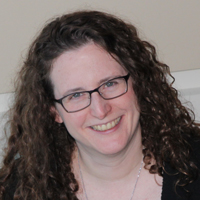 Amy Bruckman is a Professor in the School of Interactive Computing at the Georgia Institute of Technology. Her research focuses on peer production of content online. She studies how to create a motivating and supportive context for creation and sharing, and learning through this process. In higher education, she studies peer feedback for learning. Bruckman received her Ph.D. from the MIT Media Lab's Epistemology and Learning group in 1997, her M.S.V.S. from the Media Lab's Interactive Cinema Group in 1991, and a B.A. in physics from Harvard University in 1987. In 1999, she was named one of the 100 top young innovators in science and technology in the world (TR100) by Technology Review magazine. In 2002, she was awarded the Jan Hawkins Award for Early Career Contributions to Humanistic Research and Scholarship in Learning Technologies. Personal Web Page.
Amy Bruckman is a Professor in the School of Interactive Computing at the Georgia Institute of Technology. Her research focuses on peer production of content online. She studies how to create a motivating and supportive context for creation and sharing, and learning through this process. In higher education, she studies peer feedback for learning. Bruckman received her Ph.D. from the MIT Media Lab's Epistemology and Learning group in 1997, her M.S.V.S. from the Media Lab's Interactive Cinema Group in 1991, and a B.A. in physics from Harvard University in 1987. In 1999, she was named one of the 100 top young innovators in science and technology in the world (TR100) by Technology Review magazine. In 2002, she was awarded the Jan Hawkins Award for Early Career Contributions to Humanistic Research and Scholarship in Learning Technologies. Personal Web Page.
Speakers
Nelson Baker
 Dr. Nelson Baker is the Dean of Professional Education at the Georgia Institute of Technology and a faculty member in the School of Civil and Environmental Engineering. He leads the university’s efforts to provide educational opportunities to individuals as well as industry and government organizations worldwide through Georgia Tech’s online and distance learning programs, professional education activities, a language institute, and conference center operations in Atlanta and Savannah. He is a nationally recognized leader in educational technologies designed for and applied to engineering having won numerous awards in this area. Georgia Tech’s professional education activities serve more than 13,000 individuals and 3,500 organizations annually representing more than half the world’s countries. With more than half a million MOOC enrollments and a partner in the online Master of Science in Computer Science via a MOOC platform, he is helping lead Georgia Tech’s strategy for online initiatives. Personal Web Page.
Dr. Nelson Baker is the Dean of Professional Education at the Georgia Institute of Technology and a faculty member in the School of Civil and Environmental Engineering. He leads the university’s efforts to provide educational opportunities to individuals as well as industry and government organizations worldwide through Georgia Tech’s online and distance learning programs, professional education activities, a language institute, and conference center operations in Atlanta and Savannah. He is a nationally recognized leader in educational technologies designed for and applied to engineering having won numerous awards in this area. Georgia Tech’s professional education activities serve more than 13,000 individuals and 3,500 organizations annually representing more than half the world’s countries. With more than half a million MOOC enrollments and a partner in the online Master of Science in Computer Science via a MOOC platform, he is helping lead Georgia Tech’s strategy for online initiatives. Personal Web Page.
John Mitchell
 John Mitchell is Vice Provost for Online Learning at Stanford. Under his leadership, his office is pioneering new ways to harness technology and apply research-driven innovation to advance teaching and learning at Stanford—and beyond. Mitchell was instrumental in developing a platform that was foundational for flipped classroom experiments and helped inspire the MOOCs at Stanford that captured worldwide attention in 2011. Mitchell is the Mary and Gordon Crary Family Professor in Computer Science and Electrical Engineering and co-director of the Stanford Computer Security Lab. As a result of his early research, he played a pivotal role in developing type theory as a foundation for programming languages. More recently he has focused on computer security, developing analysis methods and improving network protocol security, authorization and access control, web security, and privacy. His efforts have resulted in the development of concepts used in the Java programming language, improved the security of widely used wireless networking protocols, contributed to the security architecture of the Chrome browser and other components of the modern web. Mitchell has served on the editorial board of ten academic journals, acted as consultant and advisor to numerous companies, and spent sabbaticals at the Newton Institute for Mathematical Science and Coverity, Inc. He is the author of two books and over 170 research papers. Personal Web Page.
John Mitchell is Vice Provost for Online Learning at Stanford. Under his leadership, his office is pioneering new ways to harness technology and apply research-driven innovation to advance teaching and learning at Stanford—and beyond. Mitchell was instrumental in developing a platform that was foundational for flipped classroom experiments and helped inspire the MOOCs at Stanford that captured worldwide attention in 2011. Mitchell is the Mary and Gordon Crary Family Professor in Computer Science and Electrical Engineering and co-director of the Stanford Computer Security Lab. As a result of his early research, he played a pivotal role in developing type theory as a foundation for programming languages. More recently he has focused on computer security, developing analysis methods and improving network protocol security, authorization and access control, web security, and privacy. His efforts have resulted in the development of concepts used in the Java programming language, improved the security of widely used wireless networking protocols, contributed to the security architecture of the Chrome browser and other components of the modern web. Mitchell has served on the editorial board of ten academic journals, acted as consultant and advisor to numerous companies, and spent sabbaticals at the Newton Institute for Mathematical Science and Coverity, Inc. He is the author of two books and over 170 research papers. Personal Web Page.
Marian Petre
 Marian Petre is a Professor of Computing at the Open University in the UK. She held a Royal Society Wolfson Research Merit Award, in recognition of her research on the nature of expertise in software design, and on reasoning and representation in software development. She has also conducted substantial empirical research in Computer Science Education, co-authoring 'Computer Science Education Research' and 'Principles and Pragmatics of Computer Science Projectwork'. She wrote a column on distance education for ACM InRoads (2010-2013), and she has engaged internationally in building research communities and running innovative research development workshops. She has a PhD in Computer Science from University College London and a BA in Psycholinguistics from Swarthmore College. Personal Web Page.
Marian Petre is a Professor of Computing at the Open University in the UK. She held a Royal Society Wolfson Research Merit Award, in recognition of her research on the nature of expertise in software design, and on reasoning and representation in software development. She has also conducted substantial empirical research in Computer Science Education, co-authoring 'Computer Science Education Research' and 'Principles and Pragmatics of Computer Science Projectwork'. She wrote a column on distance education for ACM InRoads (2010-2013), and she has engaged internationally in building research communities and running innovative research development workshops. She has a PhD in Computer Science from University College London and a BA in Psycholinguistics from Swarthmore College. Personal Web Page.
The Future of Scholarly Publication: Key Issues Facing Computing Research
Chair
Jack Davidson
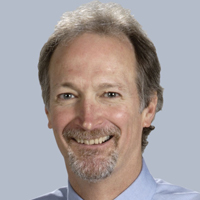 Jack Davidson is a Professor of Computer Science at the University of Virginia. He joined the faculty in 1981 after receiving his Ph.D. in Computer Science from the University of Arizona. Davidson’s research interests include compilers, programming languages, computer architecture, embedded systems, and computer security. He is the principal investigator of several ongoing grants to develop comprehensive methods for protecting software from malicious attacks. He is also a principal member of TechXicians, a team selected to compete in DARPA's Cyber Grand Challenge. Professor Davidson is a Fellow of the Association for Computing Machinery (ACM) and a Senior Member the IEEE Computer Society. He served as an Associate Editor of Transactions on Programming Languages and Systems for six years, and as an Associate Editor of Transactions on Architecture and Compiler Optimizations. He served as chair of ACM’s Special Interest Group on Programming Languages (SIGPLAN) from 2005–2007. He is a member of ACM’s Council and serves as co-chair of ACM’s Publication Board, which oversees all aspects of ACM’s publications and the operation of the ACM’s Digital Library. Davidson is co-author of two best-selling introductory programming textbooks, C++ Program Design: An Introduction to Object-Oriented Programming, 3rd edition and Java 5.0 Program Design: An Introduction to Object-Oriented Programming, 2nd edition. He and his co-author, James P. Cohoon, have organized numerous workshops for college professors on how to teach object-oriented programming. In recognition of their contributions to computer science education, he and Professor Cohoon received the 2008 IEEE Computer Society Taylor L. Booth Education Award. Personal Web Page.
Jack Davidson is a Professor of Computer Science at the University of Virginia. He joined the faculty in 1981 after receiving his Ph.D. in Computer Science from the University of Arizona. Davidson’s research interests include compilers, programming languages, computer architecture, embedded systems, and computer security. He is the principal investigator of several ongoing grants to develop comprehensive methods for protecting software from malicious attacks. He is also a principal member of TechXicians, a team selected to compete in DARPA's Cyber Grand Challenge. Professor Davidson is a Fellow of the Association for Computing Machinery (ACM) and a Senior Member the IEEE Computer Society. He served as an Associate Editor of Transactions on Programming Languages and Systems for six years, and as an Associate Editor of Transactions on Architecture and Compiler Optimizations. He served as chair of ACM’s Special Interest Group on Programming Languages (SIGPLAN) from 2005–2007. He is a member of ACM’s Council and serves as co-chair of ACM’s Publication Board, which oversees all aspects of ACM’s publications and the operation of the ACM’s Digital Library. Davidson is co-author of two best-selling introductory programming textbooks, C++ Program Design: An Introduction to Object-Oriented Programming, 3rd edition and Java 5.0 Program Design: An Introduction to Object-Oriented Programming, 2nd edition. He and his co-author, James P. Cohoon, have organized numerous workshops for college professors on how to teach object-oriented programming. In recognition of their contributions to computer science education, he and Professor Cohoon received the 2008 IEEE Computer Society Taylor L. Booth Education Award. Personal Web Page.
Moderator
Joseph Konstan
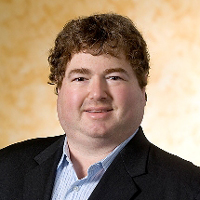 Joseph A. Konstan is Distinguished McKnight University Professor and Distinguished University Teaching Professor of Computer Science and Engineering at the University of Minnesota where he directs the GroupLens Research Lab and serves as Associate Department Head. His research lies in the area of human-computer interaction with a focus on personalization (recommender systems) and social computing. Prof. Konstan has also conducted research comparing subsequent citations counts of journal and conference papers, looking specifically at the impact of conference selectivity on subsequent citations. Konstan is currently co-Chair of the ACM Publications Board, which sets ACM's policies and strategy regarding publications and the ACM Digital Library. He has previously served as chair of ACM's Special Interest Group Governing Board, which oversees conference policy, and as President of ACM's 4500-member special interest group on computer-human interaction (SIGCHI). Dr. Konstan received his A.B. in Computer Science from Harvard and his M.S. and Ph.D. in Computer Science from the University of California, Berkeley. He has been elected Fellow of ACM, IEEE, and AAAS, and a member of the CHI Academy. He is also a recipient of the ACM Software Systems Award and the ACM SIGCHI Lifetime Service Award. Personal Web Page.
Joseph A. Konstan is Distinguished McKnight University Professor and Distinguished University Teaching Professor of Computer Science and Engineering at the University of Minnesota where he directs the GroupLens Research Lab and serves as Associate Department Head. His research lies in the area of human-computer interaction with a focus on personalization (recommender systems) and social computing. Prof. Konstan has also conducted research comparing subsequent citations counts of journal and conference papers, looking specifically at the impact of conference selectivity on subsequent citations. Konstan is currently co-Chair of the ACM Publications Board, which sets ACM's policies and strategy regarding publications and the ACM Digital Library. He has previously served as chair of ACM's Special Interest Group Governing Board, which oversees conference policy, and as President of ACM's 4500-member special interest group on computer-human interaction (SIGCHI). Dr. Konstan received his A.B. in Computer Science from Harvard and his M.S. and Ph.D. in Computer Science from the University of California, Berkeley. He has been elected Fellow of ACM, IEEE, and AAAS, and a member of the CHI Academy. He is also a recipient of the ACM Software Systems Award and the ACM SIGCHI Lifetime Service Award. Personal Web Page.
Speakers
Todd Green
 Todd Green is Publisher of Computer Science and Digital Security at Elsevier, managing the Morgan Kaufmann, Syngress, and Newnes imprints. During his time at Elsevier, Todd has developed a range of award-winning publications including the recent fifth edition of Computer Organization and Design by David Patterson and John Hennessy, the recipient of a Texty Award in 2014 from the Text and Academic Authors Association. Prior to Elsevier Todd was an acquisitions editor with Pearson Education publishing on emerging technologies for programmers and engineers, as well as an editor at Sourcebooks where he created interactive multimedia books, including the New York Times best-selling poetry collection Hip Hop Speaks to Children. Personal Web Page.
Todd Green is Publisher of Computer Science and Digital Security at Elsevier, managing the Morgan Kaufmann, Syngress, and Newnes imprints. During his time at Elsevier, Todd has developed a range of award-winning publications including the recent fifth edition of Computer Organization and Design by David Patterson and John Hennessy, the recipient of a Texty Award in 2014 from the Text and Academic Authors Association. Prior to Elsevier Todd was an acquisitions editor with Pearson Education publishing on emerging technologies for programmers and engineers, as well as an editor at Sourcebooks where he created interactive multimedia books, including the New York Times best-selling poetry collection Hip Hop Speaks to Children. Personal Web Page.
Margo Seltzer
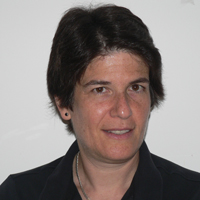 Margo I. Seltzer is a Herchel Smith Professor of Computer Science in the Harvard School of Engineering and Applied Sciences. Her research interests include provenance, file systems, databases, transaction processing systems, and applying technology to problems in healthcare. She is the author of several widely-used software packages including database and transaction libraries and the 4.4BSD log-structured file system. Dr. Seltzer was a founder and CTO of Sleepycat Software, the makers of Berkeley DB, and is now an Architect at Oracle Corporation. She is currently the President of the USENIX Association and a member of the Computing Research Association's Computing Community Consortium. She is a Sloan Foundation Fellow in Computer Science, an ACM Fellow, a Bunting Fellow, and was the recipient of the 1996 Radcliffe Junior Faculty Fellowship. She is recognized as an outstanding teacher and mentor, having received the Phi Beta Kappa teaching award in 1996, the Abrahmson Teaching Award in 1999, and the Capers and Marion McDonald Award for Excellence in Mentoring and Advising in 2010. Dr. Seltzer received an A.B. degree in Applied Mathematics from Harvard/Radcliffe College in 1983 and a Ph. D. in Computer Science from the University of California, Berkeley, in 1992. Personal Web Page.
Margo I. Seltzer is a Herchel Smith Professor of Computer Science in the Harvard School of Engineering and Applied Sciences. Her research interests include provenance, file systems, databases, transaction processing systems, and applying technology to problems in healthcare. She is the author of several widely-used software packages including database and transaction libraries and the 4.4BSD log-structured file system. Dr. Seltzer was a founder and CTO of Sleepycat Software, the makers of Berkeley DB, and is now an Architect at Oracle Corporation. She is currently the President of the USENIX Association and a member of the Computing Research Association's Computing Community Consortium. She is a Sloan Foundation Fellow in Computer Science, an ACM Fellow, a Bunting Fellow, and was the recipient of the 1996 Radcliffe Junior Faculty Fellowship. She is recognized as an outstanding teacher and mentor, having received the Phi Beta Kappa teaching award in 1996, the Abrahmson Teaching Award in 1999, and the Capers and Marion McDonald Award for Excellence in Mentoring and Advising in 2010. Dr. Seltzer received an A.B. degree in Applied Mathematics from Harvard/Radcliffe College in 1983 and a Ph. D. in Computer Science from the University of California, Berkeley, in 1992. Personal Web Page.
Recruiting Domestic Students to Ph.D. Programs: From Data to Recommendations
Chairs
Ran Libeskind-Hadas
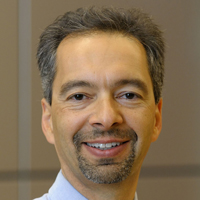 Ran "RON" Libeskind-Hadas is the R. Michael Shanahan Professor and department chair in the Computer Science Department at Harvey Mudd College. He received the A.B. in applied mathematics from Harvard the M.S. and Ph.D. in CS from UIUC where he studied with C. L. Liu. His research interests are in algorithmic computational biology. With Susanne Hambrusch, Ran co-chairs CRA's Education Committee (CRA-E) and he also serves on the CCC Council where he is involved in issues related to innovative curricula, undergraduate research, and the pipeline of domestic students continuing on to graduate school and careers in research. Personal Web Page.
Ran "RON" Libeskind-Hadas is the R. Michael Shanahan Professor and department chair in the Computer Science Department at Harvey Mudd College. He received the A.B. in applied mathematics from Harvard the M.S. and Ph.D. in CS from UIUC where he studied with C. L. Liu. His research interests are in algorithmic computational biology. With Susanne Hambrusch, Ran co-chairs CRA's Education Committee (CRA-E) and he also serves on the CCC Council where he is involved in issues related to innovative curricula, undergraduate research, and the pipeline of domestic students continuing on to graduate school and careers in research. Personal Web Page.
Susanne Hambrusch
 Susanne Hambrusch is a professor of computer science at Purdue University. She served as the Department Head from 2002 to 2007. Her research interests are in query and data management, computer science education, parallel and distributed computation, and analysis of algorithms. She received the Diplom Ingenieur in Computer Science from the Technical University of Vienna, Austria, and a Ph.D. in Computer Science from Penn State. Susanne has lead two projects in computer science education, "Science Education in Computational Thinking (SECANT)” and “Computer Science for Education (CS4EDU)” and she is currently involved in a establishing an evidence-based professional development (PD) program to improve teachers' knowledge to teach computer science. Susanne has served on the board of directors of the Computing Research Association (CRA) and the CRA Committee on the Status of Women in Computing Research (CRA-W). She currently serves on CRA's Taulbee Survey Committee and she is a co-chair on CRA’s Education committee. From 2010 to 2013, Susanne served as the Director of the Computing and Communication Foundations (CCF) Division in the CISE Directorate at NSF. She successfully led the development of several new crosscutting research programs and she worked tirelessly to increase the number of Graduate Research Fellowships for students pursuing computing disciplines. Personal Web Page.
Susanne Hambrusch is a professor of computer science at Purdue University. She served as the Department Head from 2002 to 2007. Her research interests are in query and data management, computer science education, parallel and distributed computation, and analysis of algorithms. She received the Diplom Ingenieur in Computer Science from the Technical University of Vienna, Austria, and a Ph.D. in Computer Science from Penn State. Susanne has lead two projects in computer science education, "Science Education in Computational Thinking (SECANT)” and “Computer Science for Education (CS4EDU)” and she is currently involved in a establishing an evidence-based professional development (PD) program to improve teachers' knowledge to teach computer science. Susanne has served on the board of directors of the Computing Research Association (CRA) and the CRA Committee on the Status of Women in Computing Research (CRA-W). She currently serves on CRA's Taulbee Survey Committee and she is a co-chair on CRA’s Education committee. From 2010 to 2013, Susanne served as the Director of the Computing and Communication Foundations (CCF) Division in the CISE Directorate at NSF. She successfully led the development of several new crosscutting research programs and she worked tirelessly to increase the number of Graduate Research Fellowships for students pursuing computing disciplines. Personal Web Page.
Speakers
Marie desJardins
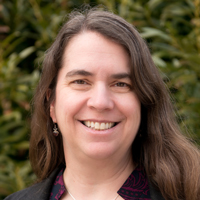 Dr. Marie desJardins is a Professor in the Department of Computer Science and Electrical Engineering at the University of Maryland, Baltimore County, where she has been a member of the faculty since 2001. Her research is in artificial intelligence, focusing on the areas of machine learning, multi-agent systems, planning, interactive AI techniques, information management, reasoning with uncertainty, and decision theory. Dr. desJardins received her Ph.D. in 1992 from the University of California, Berkeley. From 1991-2001, she was a member of the research staff at SRI International in Menlo Park, California. She has published over 100 scientific papers in journals, conferences, and workshops. She serves as an Associate Editor of the Journal of Artificial Intelligence Research, is a member of the editorial board of AI Magazine, and was the Program Cochair for AAAI-13. She has previously served as AAAI Liaison to the Board of Directors of the Computing Research Association, Vice-Chair of ACM's SIGART, and AAAI Councillor. She is an ACM Distinguished Member and a AAAI Senior Member. Dr. desJardins is active in teaching, mentoring, and advising students. She is the 2014-17 UMBC Presidential Teaching Professor and an inaugural Hrabowski Academic Innovation Fellow. She was named one of UMBC's ten "Professors Not to Miss" in 2011, and is regularly sought out to give invited talks to student groups. She has advised 13 Ph.D. students (10 to completion), 26 M.S. students (22 to completion), over 50 undergraduate researchers, and four high school student interns. Personal Web Page.
Dr. Marie desJardins is a Professor in the Department of Computer Science and Electrical Engineering at the University of Maryland, Baltimore County, where she has been a member of the faculty since 2001. Her research is in artificial intelligence, focusing on the areas of machine learning, multi-agent systems, planning, interactive AI techniques, information management, reasoning with uncertainty, and decision theory. Dr. desJardins received her Ph.D. in 1992 from the University of California, Berkeley. From 1991-2001, she was a member of the research staff at SRI International in Menlo Park, California. She has published over 100 scientific papers in journals, conferences, and workshops. She serves as an Associate Editor of the Journal of Artificial Intelligence Research, is a member of the editorial board of AI Magazine, and was the Program Cochair for AAAI-13. She has previously served as AAAI Liaison to the Board of Directors of the Computing Research Association, Vice-Chair of ACM's SIGART, and AAAI Councillor. She is an ACM Distinguished Member and a AAAI Senior Member. Dr. desJardins is active in teaching, mentoring, and advising students. She is the 2014-17 UMBC Presidential Teaching Professor and an inaugural Hrabowski Academic Innovation Fellow. She was named one of UMBC's ten "Professors Not to Miss" in 2011, and is regularly sought out to give invited talks to student groups. She has advised 13 Ph.D. students (10 to completion), 26 M.S. students (22 to completion), over 50 undergraduate researchers, and four high school student interns. Personal Web Page.
Jens Palsberg
 Jens Palsberg is Professor and Chair of Computer Science at UCLA, University of California, Los Angeles. His research interests span the areas of compilers, embedded systems, programming languages, software engineering, and information security. He is the editor-in-chief of ACM Transactions of Programming Languages and Systems, a member of the editorial board of Information and Computation, a former member of the editorial board of IEEE Transactions on Software Engineering, and a former program chair of ACM Symposium on Principles of Programming Languages (POPL). In 2012 he received the ACM SIGPLAN Distinguished Service Award. Personal Web Page.
Jens Palsberg is Professor and Chair of Computer Science at UCLA, University of California, Los Angeles. His research interests span the areas of compilers, embedded systems, programming languages, software engineering, and information security. He is the editor-in-chief of ACM Transactions of Programming Languages and Systems, a member of the editorial board of Information and Computation, a former member of the editorial board of IEEE Transactions on Software Engineering, and a former program chair of ACM Symposium on Principles of Programming Languages (POPL). In 2012 he received the ACM SIGPLAN Distinguished Service Award. Personal Web Page.
Barbara Ryder
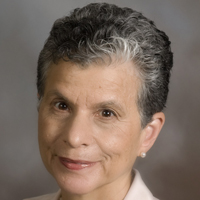 Dr. Barbara G. Ryder is Head of the Department of Computer Science at Virginia Tech, where she holds the J. Byron Maupin Professorship in Engineering. She received an A.B. degree in Applied Mathematics from Brown University (1969), a M.S. degree in Computer Science from Stanford University (1971), and a Ph.D. degree in Computer Science from Rutgers University (1982). Before coming to Virginia Tech, Dr. Ryder served on the faculty of Rutgers University (1982-2008). She also worked in the 1970’s at AT&T Bell Laboratories in Murray Hill, NJ. Dr. Ryder is a Fellow of the ACM (1998), received the ACM President’s Award (2008), was selected as a CRA-W Distinguished Professor (2004), and received the ACM SIGPLAN Distinguished Service Award (2001). Dr. Ryder also received the Virginia AAUW 2014 Woman of Achievement Award. At Rutgers, she received the Graduate School Teaching Award (2007), Leader in Diversity Award (2006) and Professor of the Year Award for Excellence in Teaching (2003) from the Rutgers CS Graduate Students Society. She is a leader in Pacesetters and VA/DC Aspirations in Computing, activities sponsored by NCWIT (National Center for Women in Information Technology). Dr. Ryder currently serves as an editorial board member of ACM Transactions on Software Engineering Methodology, Science of Computer Programming, and Software, Practice and Experience. Dr Ryder’s current research focuses on combining static and dynamic program analyses for software tools aimed at dynamic programming languages such as JavaScript and for ensuring the security of mobile phone applications. Personal Web Page.
Dr. Barbara G. Ryder is Head of the Department of Computer Science at Virginia Tech, where she holds the J. Byron Maupin Professorship in Engineering. She received an A.B. degree in Applied Mathematics from Brown University (1969), a M.S. degree in Computer Science from Stanford University (1971), and a Ph.D. degree in Computer Science from Rutgers University (1982). Before coming to Virginia Tech, Dr. Ryder served on the faculty of Rutgers University (1982-2008). She also worked in the 1970’s at AT&T Bell Laboratories in Murray Hill, NJ. Dr. Ryder is a Fellow of the ACM (1998), received the ACM President’s Award (2008), was selected as a CRA-W Distinguished Professor (2004), and received the ACM SIGPLAN Distinguished Service Award (2001). Dr. Ryder also received the Virginia AAUW 2014 Woman of Achievement Award. At Rutgers, she received the Graduate School Teaching Award (2007), Leader in Diversity Award (2006) and Professor of the Year Award for Excellence in Teaching (2003) from the Rutgers CS Graduate Students Society. She is a leader in Pacesetters and VA/DC Aspirations in Computing, activities sponsored by NCWIT (National Center for Women in Information Technology). Dr. Ryder currently serves as an editorial board member of ACM Transactions on Software Engineering Methodology, Science of Computer Programming, and Software, Practice and Experience. Dr Ryder’s current research focuses on combining static and dynamic program analyses for software tools aimed at dynamic programming languages such as JavaScript and for ensuring the security of mobile phone applications. Personal Web Page.
Ecosystem Challenges Around Data Use
Chair
Chris Johnson
 Chris Johnson is the founding director of the Scientific Computing and Imaging (SCI) Institute at the University of Utah where he is a Distinguished Professor of Computer Science and holds faculty appointments in Physics and Bioengineering. His research interests are in the areas of scientific computing and scientific visualization. Dr. Johnson founded the SCI research group in 1992, which has since grown to become the SCI Institute employing over 200 people. Professor Johnson serves on several international journal editorial boards, as well as on advisory boards to several international research centers. Professor Johnson was awarded a Young Investigator's Award from the NIH in 1992, the NSF NYI Award in 1994, and the NSF Presidential Faculty Fellow award from President Clinton in 1995. In 1996 he received a DOE Computational Science Award and in 1997 received the Par Excellence Award from the University of Utah Alumni Association and the Presidential Teaching Scholar Award. In 1999, he was Awarded the Governor's Medal for Science and Technology. In 2003 he received the Distinguished Professor Award from the University of Utah. In 2009 he received the Utah Cyber Pioneer Award. In 2010 Professor Johnson received the Rosenblatt Award from the University of Utah and the IEEE Visualization Career Award. In 2012 Professor Johnson received the IEEE IPDPS Charles Babbage Award and in 2013 Professor Johnson received the IEEE Sidney Fernbach Award. He is a Fellow of the IEEE, AAAS, SIAM, and AIMBE. Personal Web Page.
Chris Johnson is the founding director of the Scientific Computing and Imaging (SCI) Institute at the University of Utah where he is a Distinguished Professor of Computer Science and holds faculty appointments in Physics and Bioengineering. His research interests are in the areas of scientific computing and scientific visualization. Dr. Johnson founded the SCI research group in 1992, which has since grown to become the SCI Institute employing over 200 people. Professor Johnson serves on several international journal editorial boards, as well as on advisory boards to several international research centers. Professor Johnson was awarded a Young Investigator's Award from the NIH in 1992, the NSF NYI Award in 1994, and the NSF Presidential Faculty Fellow award from President Clinton in 1995. In 1996 he received a DOE Computational Science Award and in 1997 received the Par Excellence Award from the University of Utah Alumni Association and the Presidential Teaching Scholar Award. In 1999, he was Awarded the Governor's Medal for Science and Technology. In 2003 he received the Distinguished Professor Award from the University of Utah. In 2009 he received the Utah Cyber Pioneer Award. In 2010 Professor Johnson received the Rosenblatt Award from the University of Utah and the IEEE Visualization Career Award. In 2012 Professor Johnson received the IEEE IPDPS Charles Babbage Award and in 2013 Professor Johnson received the IEEE Sidney Fernbach Award. He is a Fellow of the IEEE, AAAS, SIAM, and AIMBE. Personal Web Page.
Speakers
Lada Adamic
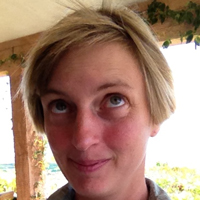 Lada A. Adamic is a research scientist manager in the Core Data Science Team at Facebook. Her research interests center on information dynamics in networks: how information diffuses, how it can be found, and how it influences the evolution of a network's structure. Previously, she was an associate professor in the School of Information and the Center for the Study of Complex Systems at the University of Michigan. She has received an NSF CAREER award, a University of Michigan Henry Russell award, and the 2012 Lagrange Prize in Complex Systems. Personal Web Page.
Lada A. Adamic is a research scientist manager in the Core Data Science Team at Facebook. Her research interests center on information dynamics in networks: how information diffuses, how it can be found, and how it influences the evolution of a network's structure. Previously, she was an associate professor in the School of Information and the Center for the Study of Complex Systems at the University of Michigan. She has received an NSF CAREER award, a University of Michigan Henry Russell award, and the 2012 Lagrange Prize in Complex Systems. Personal Web Page.
Vance Checketts
Available soon
Leonid Zhukov
 Proficient researcher and R&D leader with extensive experience conducting research, leading and managing research teams and projects and entrepreneurship. Expert in data science, machine learning, information retrieval and scientific visualization. Frequent speaker at conferences and professional meetings. Currently Director of Data Science at Ancestry.com and Professor at the Department of Data Analysis at National Research University Higher School of Economics. Co-founder of information security startup Trafica.Personal Web Page.
Proficient researcher and R&D leader with extensive experience conducting research, leading and managing research teams and projects and entrepreneurship. Expert in data science, machine learning, information retrieval and scientific visualization. Frequent speaker at conferences and professional meetings. Currently Director of Data Science at Ancestry.com and Professor at the Department of Data Analysis at National Research University Higher School of Economics. Co-founder of information security startup Trafica.Personal Web Page.
CS Research on MOOCs and Online Education
Chair
Amy Bruckman
 Amy Bruckman is a Professor in the School of Interactive Computing at the Georgia Institute of Technology. Her research focuses on peer production of content online. She studies how to create a motivating and supportive context for creation and sharing, and learning through this process. In higher education, she studies peer feedback for learning. Bruckman received her Ph.D. from the MIT Media Lab's Epistemology and Learning group in 1997, her M.S.V.S. from the Media Lab's Interactive Cinema Group in 1991, and a B.A. in physics from Harvard University in 1987. In 1999, she was named one of the 100 top young innovators in science and technology in the world (TR100) by Technology Review magazine. In 2002, she was awarded the Jan Hawkins Award for Early Career Contributions to Humanistic Research and Scholarship in Learning Technologies. Personal Web Page.
Amy Bruckman is a Professor in the School of Interactive Computing at the Georgia Institute of Technology. Her research focuses on peer production of content online. She studies how to create a motivating and supportive context for creation and sharing, and learning through this process. In higher education, she studies peer feedback for learning. Bruckman received her Ph.D. from the MIT Media Lab's Epistemology and Learning group in 1997, her M.S.V.S. from the Media Lab's Interactive Cinema Group in 1991, and a B.A. in physics from Harvard University in 1987. In 1999, she was named one of the 100 top young innovators in science and technology in the world (TR100) by Technology Review magazine. In 2002, she was awarded the Jan Hawkins Award for Early Career Contributions to Humanistic Research and Scholarship in Learning Technologies. Personal Web Page.
Speakers
Marti Hearst
 Dr. Marti Hearst is a professor in the School of Information at UC Berkeley, with an affiliate appointment in the Computer Science Division. Her primary research interests are user interfaces for search engines, information visualization, natural language processing, and improving MOOCs. She wrote the first book on Search User Interfaces and is currently working on and exploratory text analysis tool called WordSeer for humanities scholars and social scientists and on bringing peer learning into MOOCs. Prof. Hearst was named a Fellow of the ACM in 2013 and has received an NSF CAREER award, an IBM Faculty Award, two Google Research Awards, an Okawa Foundation Fellowship, three Excellence in Teaching Awards, and has been principal investigator for more than $3M in research grants. She has served on the Advisory Council of NSF's CISE Directorate and is currently on the Web Board for CACM, member of the Usage Panel for the American Heritage Dictionary, and on the Edge.org panel of experts. She is on the editorial board of ACM Transactions on Computer-Human Interaction and was formerly on the boards of ACM Transactions on the Web, Computational Linguistics, ACM Transactions on Information Systems, and IEEE Intelligent Systems. Prof. Hearst received BA, MS, and PhD degrees in Computer Science from the University of California at Berkeley, and she was a Member of the Research Staff at Xerox PARC from 1994 to 1997. Personal Web Page.
Dr. Marti Hearst is a professor in the School of Information at UC Berkeley, with an affiliate appointment in the Computer Science Division. Her primary research interests are user interfaces for search engines, information visualization, natural language processing, and improving MOOCs. She wrote the first book on Search User Interfaces and is currently working on and exploratory text analysis tool called WordSeer for humanities scholars and social scientists and on bringing peer learning into MOOCs. Prof. Hearst was named a Fellow of the ACM in 2013 and has received an NSF CAREER award, an IBM Faculty Award, two Google Research Awards, an Okawa Foundation Fellowship, three Excellence in Teaching Awards, and has been principal investigator for more than $3M in research grants. She has served on the Advisory Council of NSF's CISE Directorate and is currently on the Web Board for CACM, member of the Usage Panel for the American Heritage Dictionary, and on the Edge.org panel of experts. She is on the editorial board of ACM Transactions on Computer-Human Interaction and was formerly on the boards of ACM Transactions on the Web, Computational Linguistics, ACM Transactions on Information Systems, and IEEE Intelligent Systems. Prof. Hearst received BA, MS, and PhD degrees in Computer Science from the University of California at Berkeley, and she was a Member of the Research Staff at Xerox PARC from 1994 to 1997. Personal Web Page.
Scott Klemmer
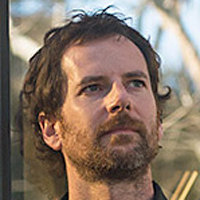 Scott’s group's research tools harvest and synthesize examples to empower more people to design, program, learn, and create. His experiments and research systems leverage real-world, web-scale usage to create practical theories for design. One focus of his recent work—inspired by the design studio—is enabling peer learning online. This work, used in 100+ massive online classes, has created techniques for effective global-scale peer assessment of creative work and small-group video discussions among learners from diverse cultures. Scott is an Associate Professor of Cognitive Science and Computer Science & Engineering at UCSD. He previously served as Associate Professor of Computer Science at Stanford, where he co-directed the HCI Group and held the Bredt Faculty Scholar chair. He has a dual BA in Art-Semiotics and Computer Science from Brown (with studio work at RISD), and a PhD in CS from Berkeley. His former graduate students are leading professors (at Berkeley, CMU, and UIUC), researchers (at Adobe), founders (including Instagram and Pulse), social entrepreneurs, and engineers. He helped introduce peer assessment to open online education, and taught the first peer-assessed online course. Organizations worldwide use his group’s open-source design tools and curricula. He has been awarded the Katayanagi Emerging Leadership Prize, Sloan Fellowship, NSF CAREER award, and Microsoft Research New Faculty Fellowship. Nine of his papers were awarded best paper or honorable mention at top HCI venues. Personal Web Page.
Scott’s group's research tools harvest and synthesize examples to empower more people to design, program, learn, and create. His experiments and research systems leverage real-world, web-scale usage to create practical theories for design. One focus of his recent work—inspired by the design studio—is enabling peer learning online. This work, used in 100+ massive online classes, has created techniques for effective global-scale peer assessment of creative work and small-group video discussions among learners from diverse cultures. Scott is an Associate Professor of Cognitive Science and Computer Science & Engineering at UCSD. He previously served as Associate Professor of Computer Science at Stanford, where he co-directed the HCI Group and held the Bredt Faculty Scholar chair. He has a dual BA in Art-Semiotics and Computer Science from Brown (with studio work at RISD), and a PhD in CS from Berkeley. His former graduate students are leading professors (at Berkeley, CMU, and UIUC), researchers (at Adobe), founders (including Instagram and Pulse), social entrepreneurs, and engineers. He helped introduce peer assessment to open online education, and taught the first peer-assessed online course. Organizations worldwide use his group’s open-source design tools and curricula. He has been awarded the Katayanagi Emerging Leadership Prize, Sloan Fellowship, NSF CAREER award, and Microsoft Research New Faculty Fellowship. Nine of his papers were awarded best paper or honorable mention at top HCI venues. Personal Web Page.
Rob Miller
 Rob Miller is a professor of computer science at MIT, and a member of the Computer Science and Artificial Intelligence Laboratory (CSAIL). He earned bachelors and masters degrees in computer science from MIT (1995) and PhD from Carnegie Mellon University (2002). He has won an ACM Distinguished Dissertation honorable mention, NSF CAREER award, and six best paper awards at UIST and USENIX. He has been program co-chair for UIST 2010 and Learning at Scale 2015, general chair for UIST 2012, associate editor of ACM TOCHI, and associate director of MIT CSAIL. He has won two department awards for teaching, and was named a MacVicar Faculty Fellow for outstanding contributions to MIT undergraduate education. His research interests lie at the intersection of programming and human computer interaction, including crowd computing, online education, software development tools, and end-user programming. Personal Web Page.
Rob Miller is a professor of computer science at MIT, and a member of the Computer Science and Artificial Intelligence Laboratory (CSAIL). He earned bachelors and masters degrees in computer science from MIT (1995) and PhD from Carnegie Mellon University (2002). He has won an ACM Distinguished Dissertation honorable mention, NSF CAREER award, and six best paper awards at UIST and USENIX. He has been program co-chair for UIST 2010 and Learning at Scale 2015, general chair for UIST 2012, associate editor of ACM TOCHI, and associate director of MIT CSAIL. He has won two department awards for teaching, and was named a MacVicar Faculty Fellow for outstanding contributions to MIT undergraduate education. His research interests lie at the intersection of programming and human computer interaction, including crowd computing, online education, software development tools, and end-user programming. Personal Web Page.
Making a Federal Case for Computing
Chair
Andrew Bernat
 Dr. Andrew Bernat was a founding member and chair of the Computer Science Department at the University of Texas at El Paso (spending 20 years there), NSF Program Director and now the Executive Director of the CRA. He has some 70 refereed publications, roughly equally in disciplinary research and in computing education, a large number of presentations and in excess of $25 million in externally funded activities. In recognition of "... his success in creating arguably the strongest computer science department at a minority-serving institution...", the Computing Research Association honored him with the 1997 A. Nico Habermann Award. Outside interests include steam locomotives, narrow gauge railroads, SCUBA and his wonderful grandchildren. Personal Web Page.
Dr. Andrew Bernat was a founding member and chair of the Computer Science Department at the University of Texas at El Paso (spending 20 years there), NSF Program Director and now the Executive Director of the CRA. He has some 70 refereed publications, roughly equally in disciplinary research and in computing education, a large number of presentations and in excess of $25 million in externally funded activities. In recognition of "... his success in creating arguably the strongest computer science department at a minority-serving institution...", the Computing Research Association honored him with the 1997 A. Nico Habermann Award. Outside interests include steam locomotives, narrow gauge railroads, SCUBA and his wonderful grandchildren. Personal Web Page.
Speakers
Peter Harsha
 Peter Harsha is the Director of Government Affairs for the Computing Research Association, an organization representing 200 North American academic departments of computer science, computer engineering and related fields; industrial research labs; and 6 affiliated professional societies. In his position, Peter works to help CRA influence computing research policy by improving public and policy makers' understanding of the nature of research, and by increasing the computing community’s awareness of and participation in policy issues. Prior to joining CRA in October 2001, Peter spent six years working for Congress, beginning as a member of the personal staff of Congressman Nick Smith of Michigan. In the 106th and 107th Congresses, Peter served as a member of the professional staff of the House Science Committee as Chairman Smith’s designee on the Subcommittee on Research, working on a portfolio of issues that included oversight of the National Science Foundation, Information Technology, the U.S. Fire Administration, and the National Earthquake Hazards Reduction Program. Peter is a graduate of Hillsdale College in Hillsdale, Michigan. Personal Web Page.
Peter Harsha is the Director of Government Affairs for the Computing Research Association, an organization representing 200 North American academic departments of computer science, computer engineering and related fields; industrial research labs; and 6 affiliated professional societies. In his position, Peter works to help CRA influence computing research policy by improving public and policy makers' understanding of the nature of research, and by increasing the computing community’s awareness of and participation in policy issues. Prior to joining CRA in October 2001, Peter spent six years working for Congress, beginning as a member of the personal staff of Congressman Nick Smith of Michigan. In the 106th and 107th Congresses, Peter served as a member of the professional staff of the House Science Committee as Chairman Smith’s designee on the Subcommittee on Research, working on a portfolio of issues that included oversight of the National Science Foundation, Information Technology, the U.S. Fire Administration, and the National Earthquake Hazards Reduction Program. Peter is a graduate of Hillsdale College in Hillsdale, Michigan. Personal Web Page.
Managing Up - Working With Your Dean
Chair
Bobby Schnabel
 Bobby Schnabel is Dean of the School of Informatics and Computing at Indiana University. In this position he leads a multi-campus school of approximately 150 faculty and 3000 students at the Bloomington and Indianapolis campuses, including undergraduate and graduate programs in computer science and informatics, and graduate programs in information and library science. From 2009-2010 he also served as interim IU vice president for research. Prior to joining IU in July 2007, Schnabel was on the computer science faculty of the University of Colorado at Boulder from 1977-2007. He served as Vice Provost for Academic and Campus Technology and Chief Information Officer at the University of Colorado at Boulder from 1998-2007, and as founding director of the Alliance for Technology, Learning and Society (ATLAS), a campus-wide information technology institute, from 1997-2007. Schnabel is a co-founder and executive team member of the National Center for Women & Information Technology, and is chair of the ACM Education Policy Committee. He currently serves on the advisory committee for the NSF Directorate for Computer and Information Science and Engineering, and on the boards of code.org and MentorNet. He is a fellow of ACM and of SIAM. Personal Web Page.
Bobby Schnabel is Dean of the School of Informatics and Computing at Indiana University. In this position he leads a multi-campus school of approximately 150 faculty and 3000 students at the Bloomington and Indianapolis campuses, including undergraduate and graduate programs in computer science and informatics, and graduate programs in information and library science. From 2009-2010 he also served as interim IU vice president for research. Prior to joining IU in July 2007, Schnabel was on the computer science faculty of the University of Colorado at Boulder from 1977-2007. He served as Vice Provost for Academic and Campus Technology and Chief Information Officer at the University of Colorado at Boulder from 1998-2007, and as founding director of the Alliance for Technology, Learning and Society (ATLAS), a campus-wide information technology institute, from 1997-2007. Schnabel is a co-founder and executive team member of the National Center for Women & Information Technology, and is chair of the ACM Education Policy Committee. He currently serves on the advisory committee for the NSF Directorate for Computer and Information Science and Engineering, and on the boards of code.org and MentorNet. He is a fellow of ACM and of SIAM. Personal Web Page.
Speakers
Randal Bryant
 Randal E. Bryant is a University Professor in the Computer Science Department at Carnegie Mellon University. He has been on the faculty at Carnegie Mellon since 1984, starting as an Assistant Professor and progressing to his current rank of University Professor of Computer Science. He also holds a courtesy appointment in the Electrical and Computer Engineering Department. He served as Dean of the School of Computer Science from 2004 to 2014. Dr. Bryant's research focuses on methods for formally verifying digital hardware, and more recently some forms of software. His 1986 paper on symbolic Boolean manipulation using Ordered Binary Decision Diagrams (BDDs) has the highest citation count of any publication in the Citeseer database of computer science literature. In addition, he has developed several techniques to verify circuits by symbolic simulation, with levels of abstraction ranging from transistors to very high-level representations. Dr. Bryant received his B.S. in Applied Mathematics from the University of Michigan in 1973, and his PhD from MIT in 1981. He was on the faculty at Caltech from 1981 to 1984. Personal Web Page.
Randal E. Bryant is a University Professor in the Computer Science Department at Carnegie Mellon University. He has been on the faculty at Carnegie Mellon since 1984, starting as an Assistant Professor and progressing to his current rank of University Professor of Computer Science. He also holds a courtesy appointment in the Electrical and Computer Engineering Department. He served as Dean of the School of Computer Science from 2004 to 2014. Dr. Bryant's research focuses on methods for formally verifying digital hardware, and more recently some forms of software. His 1986 paper on symbolic Boolean manipulation using Ordered Binary Decision Diagrams (BDDs) has the highest citation count of any publication in the Citeseer database of computer science literature. In addition, he has developed several techniques to verify circuits by symbolic simulation, with levels of abstraction ranging from transistors to very high-level representations. Dr. Bryant received his B.S. in Applied Mathematics from the University of Michigan in 1973, and his PhD from MIT in 1981. He was on the faculty at Caltech from 1981 to 1984. Personal Web Page.
Teresa Dahlberg
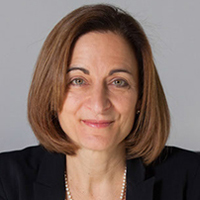 Teresa A. Dahlberg is Professor of Electrical Engineering, Dean of the Albert Nerken School of Engineering and Chief Academic Officer of The Cooper Union. Prior to joining Cooper in 2013, Teresa was Professor of Computer Science and Associate Dean of the College of Computing and Informatics at the University of North Carolina (UNC) Charlotte. At UNC Charlotte, Teresa established the Wireless Networking Research Lab and the Diversity in Information Technology Institute. She co-founded the STARS Computing Corps, a National Science Foundation alliance for broadening participation in computing. As STARS Director Teresa led creation of a service-learning program intended to strengthen the K-12 STEM and undergraduate computing pipeline and oversaw adoption of the program by 50 colleges and universities nationwide. Teresa created other pipeline programs including Socially Relevant Computing Research for Undergraduates: Visualization, Virtual Environments, Gaming and Networking; Pathways from Community College to Graduate School; and PhD Fellowships for Computing Sciences. At The Cooper Union, Teresa is launching a new undergraduate degree program in computing, design and innovation. Teresa has a B.S. in Electrical Engineering from the University of Pittsburgh (1984) and M.S. and Ph.D. in Computer Engineering from North Carolina State University (1993). She spent ten years as a development engineer for IBM before joining academia. Personal Web Page.
Teresa A. Dahlberg is Professor of Electrical Engineering, Dean of the Albert Nerken School of Engineering and Chief Academic Officer of The Cooper Union. Prior to joining Cooper in 2013, Teresa was Professor of Computer Science and Associate Dean of the College of Computing and Informatics at the University of North Carolina (UNC) Charlotte. At UNC Charlotte, Teresa established the Wireless Networking Research Lab and the Diversity in Information Technology Institute. She co-founded the STARS Computing Corps, a National Science Foundation alliance for broadening participation in computing. As STARS Director Teresa led creation of a service-learning program intended to strengthen the K-12 STEM and undergraduate computing pipeline and oversaw adoption of the program by 50 colleges and universities nationwide. Teresa created other pipeline programs including Socially Relevant Computing Research for Undergraduates: Visualization, Virtual Environments, Gaming and Networking; Pathways from Community College to Graduate School; and PhD Fellowships for Computing Sciences. At The Cooper Union, Teresa is launching a new undergraduate degree program in computing, design and innovation. Teresa has a B.S. in Electrical Engineering from the University of Pittsburgh (1984) and M.S. and Ph.D. in Computer Engineering from North Carolina State University (1993). She spent ten years as a development engineer for IBM before joining academia. Personal Web Page.
Zvi Galil
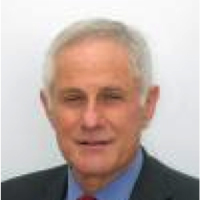 Zvi Galil was born in Tel-Aviv, Israel. He earned BS and MS degrees in Applied Mathematics from Tel Aviv University, both summa cum laude. He then obtained a PhD in Computer Science from Cornell University. After a post-doctorate in IBM's Thomas J. Watson research center, he returned to Israel and joined the faculty of Tel-Aviv University. He served as the chair of the Computer Science department in 1979-1982. In 1982 he joined the faculty of Columbia University. In 2007 Galil returned to Tel Aviv University and served as president. In July 2010 he became Dean of Computing at Georgia Tech. Dr. Galil's research areas have been the design and analysis of algorithms, complexity, cryptography and experimental design. In 1983-1987 he served as chairman of ACM SIGACT, the Special Interest Group of Algorithms and Computation Theory. He has written over 200 scientific papers, edited 5 books, and has given more than 150 lectures in 20 countries. Galil has served as editor in chief of two journals and as the chief computer science adviser in the United States to the Oxford University Press. He is a fellow of the ACM and the American Academy of Arts and Sciences and a member of the National Academy of Engineering. In 2008 Columbia University established the Zvi Galil Award for Improvement in Engineering Student Life. In 2009 the Columbia Society of Graduates awarded him the Great Teacher Award. In 2012 the University of Waterloo awarded him an honorary doctorate in mathematics. Personal Web Page.
Zvi Galil was born in Tel-Aviv, Israel. He earned BS and MS degrees in Applied Mathematics from Tel Aviv University, both summa cum laude. He then obtained a PhD in Computer Science from Cornell University. After a post-doctorate in IBM's Thomas J. Watson research center, he returned to Israel and joined the faculty of Tel-Aviv University. He served as the chair of the Computer Science department in 1979-1982. In 1982 he joined the faculty of Columbia University. In 2007 Galil returned to Tel Aviv University and served as president. In July 2010 he became Dean of Computing at Georgia Tech. Dr. Galil's research areas have been the design and analysis of algorithms, complexity, cryptography and experimental design. In 1983-1987 he served as chairman of ACM SIGACT, the Special Interest Group of Algorithms and Computation Theory. He has written over 200 scientific papers, edited 5 books, and has given more than 150 lectures in 20 countries. Galil has served as editor in chief of two journals and as the chief computer science adviser in the United States to the Oxford University Press. He is a fellow of the ACM and the American Academy of Arts and Sciences and a member of the National Academy of Engineering. In 2008 Columbia University established the Zvi Galil Award for Improvement in Engineering Student Life. In 2009 the Columbia Society of Graduates awarded him the Great Teacher Award. In 2012 the University of Waterloo awarded him an honorary doctorate in mathematics. Personal Web Page.
Jim Kurose
 Jim Kurose received a B.A. degree in physics from Wesleyan University and his Ph.D. degree in computer science from Columbia University. He is currently Distinguished University Professor in the Department of Computer Science. Professor Kurose has been a Visiting Scientist at IBM Research, INRIA, Institut EURECOM , the University of Paris, the Laboratory for Information, Network and Communication Sciences, and Technicolor Research Labs. He has previously served in a number of campus administrative roles including Chair of the Department of Computer Science, Interim Dean of the College of Natural Sciences and Mathematics, Executive Associate Dean of the College of Natural Sciences , and senior faculty advisor for science and engineering for the Vice Chancellor for Research and Engagement. Personal Web Page.
Jim Kurose received a B.A. degree in physics from Wesleyan University and his Ph.D. degree in computer science from Columbia University. He is currently Distinguished University Professor in the Department of Computer Science. Professor Kurose has been a Visiting Scientist at IBM Research, INRIA, Institut EURECOM , the University of Paris, the Laboratory for Information, Network and Communication Sciences, and Technicolor Research Labs. He has previously served in a number of campus administrative roles including Chair of the Department of Computer Science, Interim Dean of the College of Natural Sciences and Mathematics, Executive Associate Dean of the College of Natural Sciences , and senior faculty advisor for science and engineering for the Vice Chancellor for Research and Engagement. Personal Web Page.
Hal Stern
 Hal Stern is Ted and Janice Smith Family Foundation Dean and professor of statistics at the Donald Bren School of Information and Computer Sciences at the University of California, Irvine. Stern leads the Bren School community of 70 faculty and more than 2000 students as it provides computer science and information technology leadership for the 21st century through research and development of emerging technologies, innovative and broad computing curricula, and interdisciplinary collaborations to solve societal problems. Within the field of statistics Stern is known for his research work in Bayesian statistical methodology and collaborative research in the social sciences, biological/health sciences and sports. He has authored more than 100 publications and is a co-author of the highly-regarded graduate level statistics text Bayesian Data Analysis. He is a Fellow of the American Statistical Association and the Institute of Mathematical Statistics. Stern received his B.S. degree in Mathematics from the Massachusetts Institute of Technology in 1981 and the M.S. and Ph.D. degrees in Statistics from Stanford University in 1985 and 1987, respectively. Personal Web Page.
Hal Stern is Ted and Janice Smith Family Foundation Dean and professor of statistics at the Donald Bren School of Information and Computer Sciences at the University of California, Irvine. Stern leads the Bren School community of 70 faculty and more than 2000 students as it provides computer science and information technology leadership for the 21st century through research and development of emerging technologies, innovative and broad computing curricula, and interdisciplinary collaborations to solve societal problems. Within the field of statistics Stern is known for his research work in Bayesian statistical methodology and collaborative research in the social sciences, biological/health sciences and sports. He has authored more than 100 publications and is a co-author of the highly-regarded graduate level statistics text Bayesian Data Analysis. He is a Fellow of the American Statistical Association and the Institute of Mathematical Statistics. Stern received his B.S. degree in Mathematics from the Massachusetts Institute of Technology in 1981 and the M.S. and Ph.D. degrees in Statistics from Stanford University in 1985 and 1987, respectively. Personal Web Page.
1828 L STREET, NW SUITE 800, WASHINGTON, DC 20036 | P: 202-234-2111 | F: 202-667-1066




